The Red River Farm Network’s TransFARMation series is designed to increase awareness and reduce inhibitions about acknowledging farm stress, as well as highlight the resources available. Local farmers, ranchers and agricultural stakeholders are featured, sharing personal stories and offering a message of hope.
If you or someone you know is wrestling with a challenge that’s more powerful than yourself, a list of resources is available on this page. The TransFARMation podcast is available to download and listen on iTunes, Spotify and on your favorite podcast app in the Google Play store.
Episode Description: 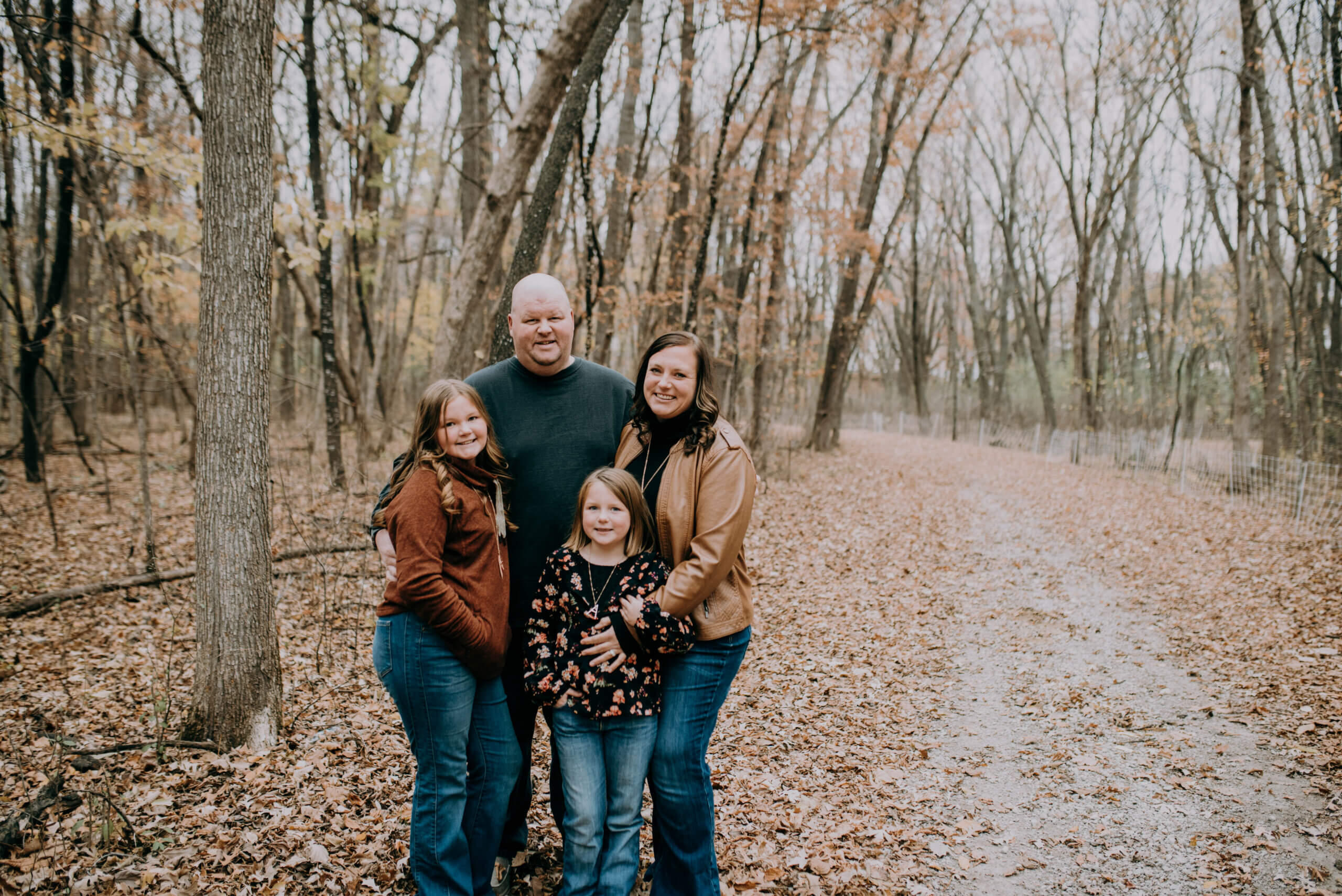 With milk prices in the $15 per hundredweight range, dairy farmers are making difficult decisions. Derrick and Amanda Sommers of Waseca, Minnesota went through a similar scenario five years ago when they sold the cows and transitioned to a life after dairying. The emotion is still ripe five years later. Derrick and Amanda share tehir story and also highlight the importance of the Minnesota rural mental health specialists, Farm Business Management and their own network of family and friends.
With milk prices in the $15 per hundredweight range, dairy farmers are making difficult decisions. Derrick and Amanda Sommers of Waseca, Minnesota went through a similar scenario five years ago when they sold the cows and transitioned to a life after dairying. The emotion is still ripe five years later. Derrick and Amanda share tehir story and also highlight the importance of the Minnesota rural mental health specialists, Farm Business Management and their own network of family and friends.
Episode Description: 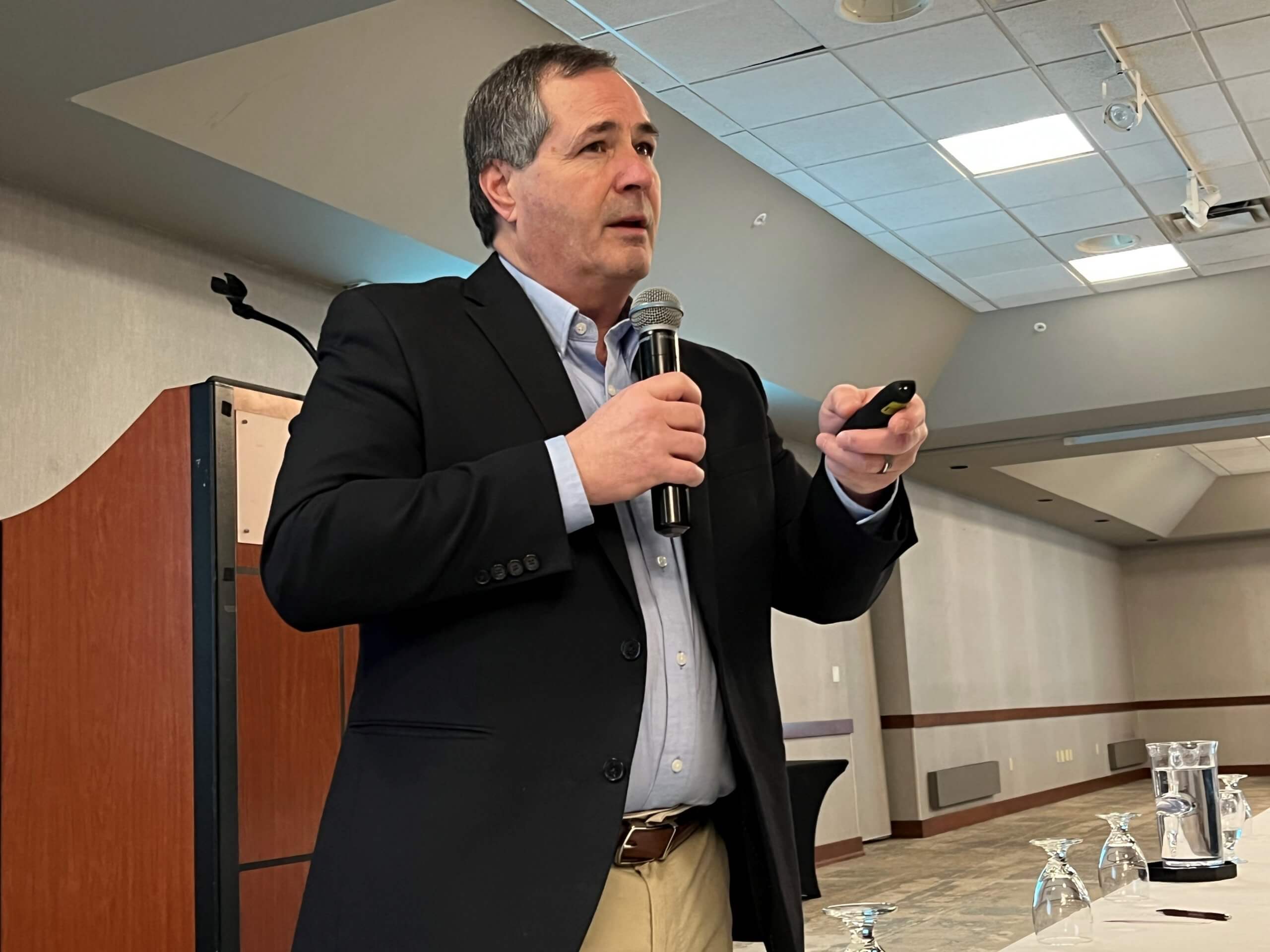 From the uncertainties of weather to high input costs, farming and ranching remains a high stress occupation. In this podcast, Agriculture Commissioner Doug Goehring discusses the stress and anxiety found in agriculture today. The triple murder suicide in North Dakota's Towner County hit home for many folks and still having an impact today. The North Dakota Department of Agriculture and its Farm and Ranch Stress Assistance Network provides additional resources. Listen to this edition of the podcast.
From the uncertainties of weather to high input costs, farming and ranching remains a high stress occupation. In this podcast, Agriculture Commissioner Doug Goehring discusses the stress and anxiety found in agriculture today. The triple murder suicide in North Dakota's Towner County hit home for many folks and still having an impact today. The North Dakota Department of Agriculture and its Farm and Ranch Stress Assistance Network provides additional resources. Listen to this edition of the podcast.
Episode Description: 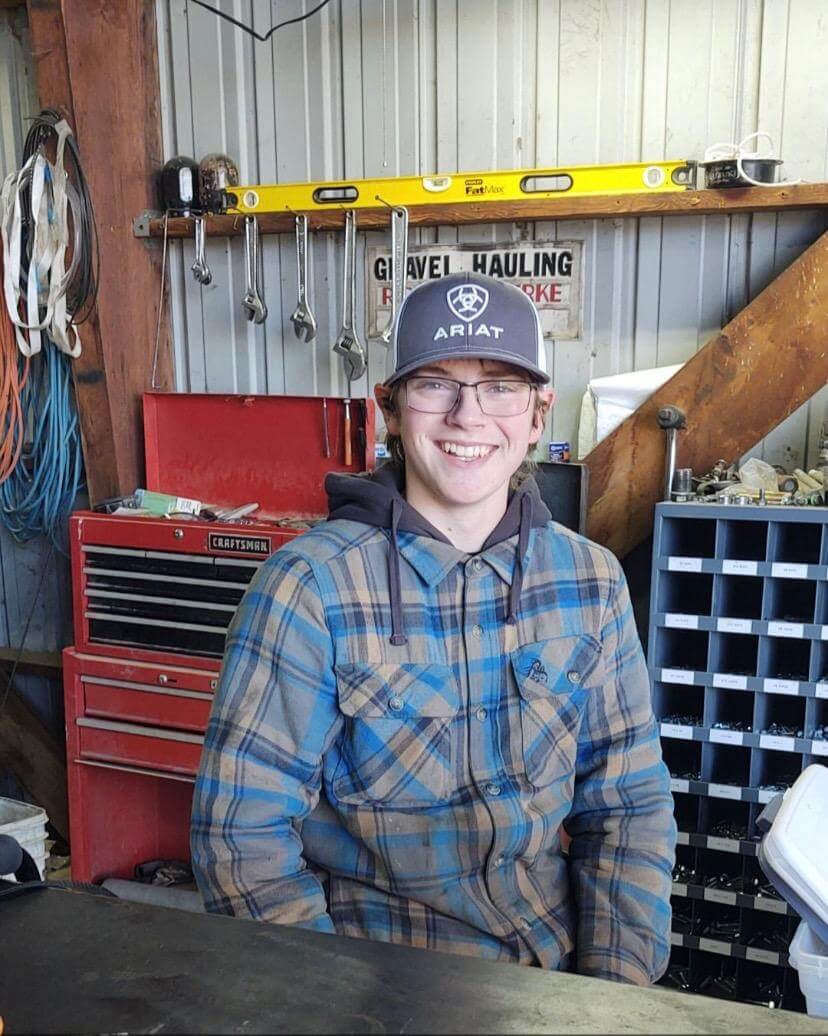 On July 18, 2022, 15-year old Chance Jacobson was out checking fences. While making a left turn off of the highway on his way home, Chance's side-by-side was hit by a minivan. The ATV rolled, resulting in severe injuries. "I have a broken right femur: I have what is called internal degloving where the skin on my right leg was sheared from the muscle. On my left knee, I'm missing my miniscus and a little bone." As a result, Chance spent nearly 40 days in the hospital and went through about a dozen surgeries. "At first, it was just about survival, but as time went on it became more about the mental part when I couldn't go out and do things." Chase's dad, John Jacobson, is also featured in this TransFARMation podcast. "The rural areas are really amazing; we had so many people offering to help with anything and everything." Chance has a tremendous attitude and is focused on his goals. "The last time I was on a horse was the day before the accident and I'd like get back to that. I also want to get this left knee moving so I can clutch and drive the truck this fall."
On July 18, 2022, 15-year old Chance Jacobson was out checking fences. While making a left turn off of the highway on his way home, Chance's side-by-side was hit by a minivan. The ATV rolled, resulting in severe injuries. "I have a broken right femur: I have what is called internal degloving where the skin on my right leg was sheared from the muscle. On my left knee, I'm missing my miniscus and a little bone." As a result, Chance spent nearly 40 days in the hospital and went through about a dozen surgeries. "At first, it was just about survival, but as time went on it became more about the mental part when I couldn't go out and do things." Chase's dad, John Jacobson, is also featured in this TransFARMation podcast. "The rural areas are really amazing; we had so many people offering to help with anything and everything." Chance has a tremendous attitude and is focused on his goals. "The last time I was on a horse was the day before the accident and I'd like get back to that. I also want to get this left knee moving so I can clutch and drive the truck this fall."
Episode Description: 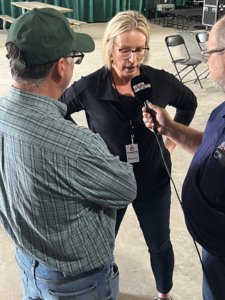 Most farmers enjoyed a good harvest and are experiencing decent markets. However, the high cost of crop inputs has cut into the margins on the farm. In addition to financial challenges, farmers and ranchers face unique stressors. In the latest TransFARMation podcast, Becky Kopp Dunham discusses the dynamics facing agriculture today. Kopp Dunham is a therapist with a special focus on issues relating to farm stress. "There are just so many moving parts to a farming and ranching operation. There are a variety of things that impact them financially that are outside of a farmer's control and that's what makes it so difficult." Thanks to the North Dakota Department of Agriculture for your support for this episode.
Most farmers enjoyed a good harvest and are experiencing decent markets. However, the high cost of crop inputs has cut into the margins on the farm. In addition to financial challenges, farmers and ranchers face unique stressors. In the latest TransFARMation podcast, Becky Kopp Dunham discusses the dynamics facing agriculture today. Kopp Dunham is a therapist with a special focus on issues relating to farm stress. "There are just so many moving parts to a farming and ranching operation. There are a variety of things that impact them financially that are outside of a farmer's control and that's what makes it so difficult." Thanks to the North Dakota Department of Agriculture for your support for this episode.
Episode Description:  Minnesota's Farm Advocate program has been in place since 1984, but many people may not be aware of this important resource. David Hesse, who farms at Comfrey, says Farm Advocates can assist with balance sheets, cash flow projections and participate in the negotiations with the lender. "Everything is up in the air right now, " Hesse told RRFN. "We've got prices like we've not been able to put into a cash flow before and we've got expenses like we've never had before." In addition to high crop input costs, Hesse is concerned about the drought and its impact on the bottomlie for producers. In the TransFARMation podcast, Hesse said it is important to get out ahead of a potential problem. "The sooner you contact us and get us involved, the better it will be."
Minnesota's Farm Advocate program has been in place since 1984, but many people may not be aware of this important resource. David Hesse, who farms at Comfrey, says Farm Advocates can assist with balance sheets, cash flow projections and participate in the negotiations with the lender. "Everything is up in the air right now, " Hesse told RRFN. "We've got prices like we've not been able to put into a cash flow before and we've got expenses like we've never had before." In addition to high crop input costs, Hesse is concerned about the drought and its impact on the bottomlie for producers. In the TransFARMation podcast, Hesse said it is important to get out ahead of a potential problem. "The sooner you contact us and get us involved, the better it will be."
Episode Description: 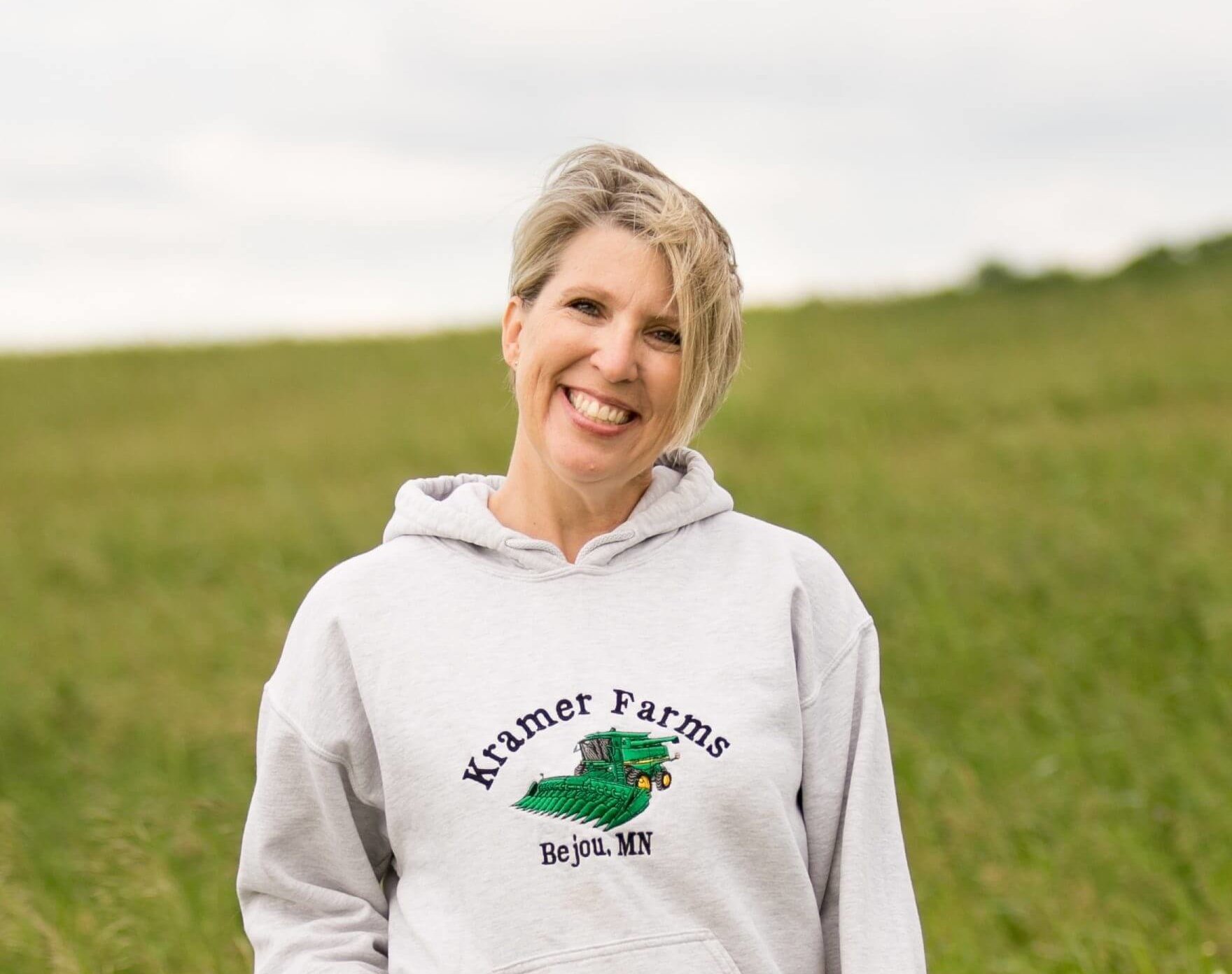 Most people would assume the number of calls to a rural mental health specialist would decline when the farm economy is strong. That's not the case. "Even in really good financial times when the commodity prices are up, the phone is still ringing," said Monica McConkey, Minnesota Rural Mental Health Specialist. "That's just an indicator that finances are just one piece of a whole bunch of things that farmers are facing." McConkey said many of the people she works with are dealing with a relationship issue. The stress of farm transition is a common topic. Farming is unique with multiple generations working together. "There's a lot to unpack in farm transitions." McConkey also helps lead a farm suicide loss group and discusses this issue in the TransFarmation podcast. The stressors impacting farm youth are also part of this conversation.
Most people would assume the number of calls to a rural mental health specialist would decline when the farm economy is strong. That's not the case. "Even in really good financial times when the commodity prices are up, the phone is still ringing," said Monica McConkey, Minnesota Rural Mental Health Specialist. "That's just an indicator that finances are just one piece of a whole bunch of things that farmers are facing." McConkey said many of the people she works with are dealing with a relationship issue. The stress of farm transition is a common topic. Farming is unique with multiple generations working together. "There's a lot to unpack in farm transitions." McConkey also helps lead a farm suicide loss group and discusses this issue in the TransFarmation podcast. The stressors impacting farm youth are also part of this conversation.
Episode Description: 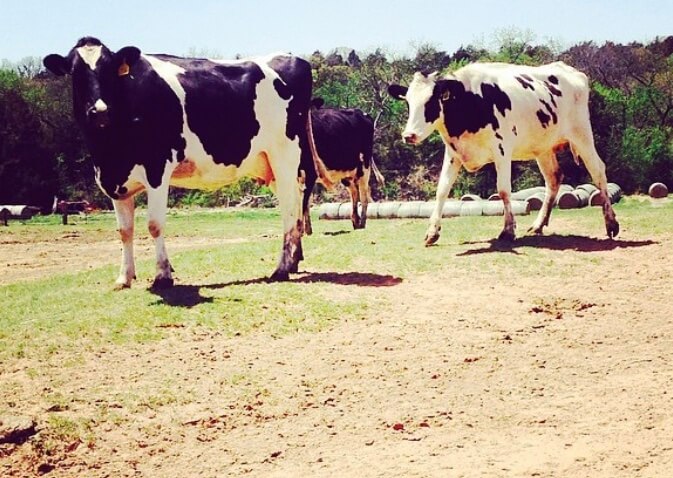 The milk check has been a roller coaster ride. Record prices this spring have been offset by persistent high production costs. "The margins shrunk," said Mark Sauter, who farms at Cannon Falls, Minnesota. "With today's price, we're floating probably 50 cents either side of breakeven; the feed costs are a big chunk of that." In the TransFARMation podcast, Sauter describes the heavy snows that collapsed the free-stall barn.That was followed by a tornado eight years later. "The 2018 one was a lot tougher to recover from. In September of 2018, a tornado came over the farm and in February of '19,. we had another 100 feet or so of free-stall roof collapse." The tornado unknowingly shifted all of the rafters about six inches from top-to-bottom. "We fought with the insurance company to prove that it was from the tornado. We got that resolved and prices skyrocketed afterwards so we were about 30 percent short of what we needed for settlement costs." Sauter said the herd is now just beginning to come back into full production. Listen to the full podcast.
The milk check has been a roller coaster ride. Record prices this spring have been offset by persistent high production costs. "The margins shrunk," said Mark Sauter, who farms at Cannon Falls, Minnesota. "With today's price, we're floating probably 50 cents either side of breakeven; the feed costs are a big chunk of that." In the TransFARMation podcast, Sauter describes the heavy snows that collapsed the free-stall barn.That was followed by a tornado eight years later. "The 2018 one was a lot tougher to recover from. In September of 2018, a tornado came over the farm and in February of '19,. we had another 100 feet or so of free-stall roof collapse." The tornado unknowingly shifted all of the rafters about six inches from top-to-bottom. "We fought with the insurance company to prove that it was from the tornado. We got that resolved and prices skyrocketed afterwards so we were about 30 percent short of what we needed for settlement costs." Sauter said the herd is now just beginning to come back into full production. Listen to the full podcast.
Episode Description:  Bill Lambert made a split second deciison and it cost him his life on February 7, 2002. While at work in Leonard, North Dakota, Lambert dislodged crusted corn in a grain bin and there was no way to escape once the grain began to flow. "When his site supervisor hears the belt squealing on the auger, he came running to check on Bill and by the time he got there all he could see was the tips of Bill's fingers above the corn," said Dawn Chisholm. Dawn and Bill had three young children at the time.and the entire family was impacted by this tragedy. Dawn, who has since remarried, says this tragedy was overwhelming. "That first year you are in shock, I think you just go into survival mode, but living in a small community, everyone rallies around you." In the TransFARMation podcast, Dawn said we all have those 'if only' moments. "We all do things that we think we can get away with; it may be taking a quick look at our phone, texting and driving." Dawn now lives at Hawley, Minnesota and shares her inspirational story throughout the Midwest. Listen to the full podcast.
Bill Lambert made a split second deciison and it cost him his life on February 7, 2002. While at work in Leonard, North Dakota, Lambert dislodged crusted corn in a grain bin and there was no way to escape once the grain began to flow. "When his site supervisor hears the belt squealing on the auger, he came running to check on Bill and by the time he got there all he could see was the tips of Bill's fingers above the corn," said Dawn Chisholm. Dawn and Bill had three young children at the time.and the entire family was impacted by this tragedy. Dawn, who has since remarried, says this tragedy was overwhelming. "That first year you are in shock, I think you just go into survival mode, but living in a small community, everyone rallies around you." In the TransFARMation podcast, Dawn said we all have those 'if only' moments. "We all do things that we think we can get away with; it may be taking a quick look at our phone, texting and driving." Dawn now lives at Hawley, Minnesota and shares her inspirational story throughout the Midwest. Listen to the full podcast.
Episode Description: 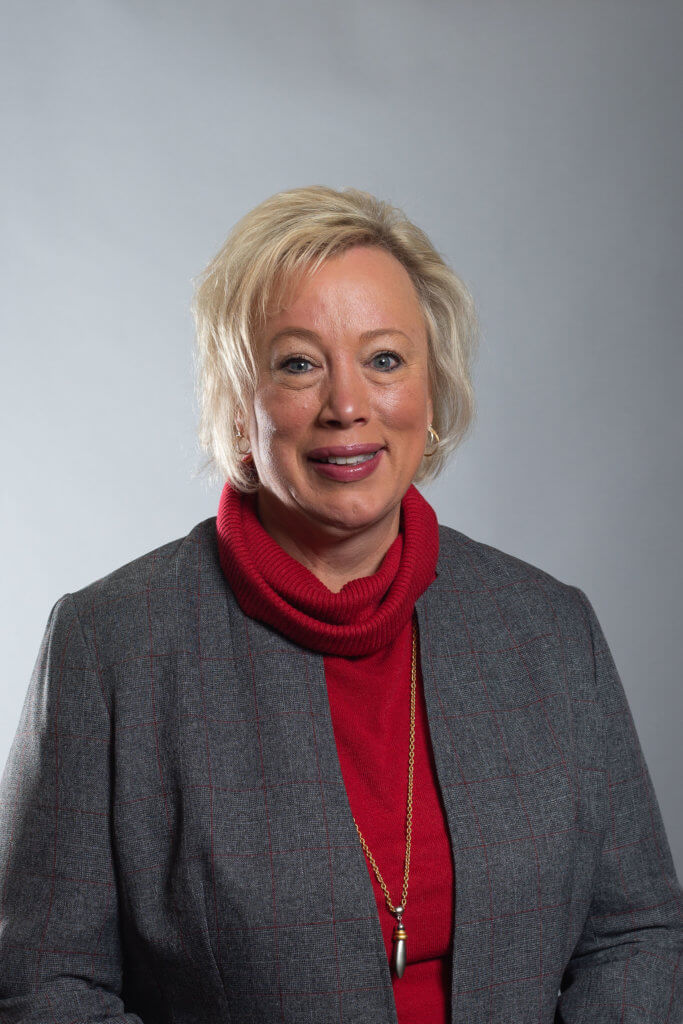 Nearly 75 percent of farmers surveyed said they have been impacted by the opioid epidemic. These pain meds may be in your medicine cabinet or bedstand. "Never did I dream when I started working with Farm Bureau 25 years ago that when was out talking about farm safety and farmer wellness I'd be talking about suicides and addiction," said Ruth Meirick, who leads the Minnesota Farm Bureau Foundation. "I probably spend the most time in those two areas when discussing farm safety." Addiction to prescribed opioids can start within three days. While it can be a scary topic, Meirick said the discussion about addiction and mental welness should be normalized. "This impacts a lot of people, we need to talk about it." Learn more about the impact of opioid addiction in this edition of TransFARMation.
Nearly 75 percent of farmers surveyed said they have been impacted by the opioid epidemic. These pain meds may be in your medicine cabinet or bedstand. "Never did I dream when I started working with Farm Bureau 25 years ago that when was out talking about farm safety and farmer wellness I'd be talking about suicides and addiction," said Ruth Meirick, who leads the Minnesota Farm Bureau Foundation. "I probably spend the most time in those two areas when discussing farm safety." Addiction to prescribed opioids can start within three days. While it can be a scary topic, Meirick said the discussion about addiction and mental welness should be normalized. "This impacts a lot of people, we need to talk about it." Learn more about the impact of opioid addiction in this edition of TransFARMation.
Episode Description: 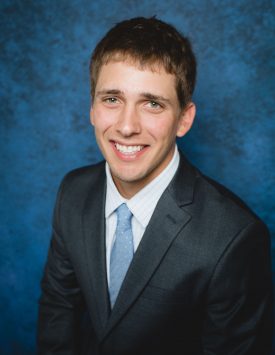 Brent Meshke has a unique perspective. He raises lambs, hogs, corn, soybeans and alfalfa on his Lake Crystal farm. For the past two years, Meshke has also been an ag lender for MinnStar Bank. "It definitely helps with the lending business, being able to see both sides of the table." Commodity prices are high, but farm input costs are also escalating. Meshke stress the importance of having an accurate cash flow statement. "The projections often start at the beginning of the year, but it is also good to put sales in the projections even after you meet with the lender. Personally, I like FINPACK and there are some operators that work with Farm Business Management and that's great." Meshke says it is important to know the capabilities of your farm and what it will cost. Listen to the entire conversation with Brent Meshke.
Brent Meshke has a unique perspective. He raises lambs, hogs, corn, soybeans and alfalfa on his Lake Crystal farm. For the past two years, Meshke has also been an ag lender for MinnStar Bank. "It definitely helps with the lending business, being able to see both sides of the table." Commodity prices are high, but farm input costs are also escalating. Meshke stress the importance of having an accurate cash flow statement. "The projections often start at the beginning of the year, but it is also good to put sales in the projections even after you meet with the lender. Personally, I like FINPACK and there are some operators that work with Farm Business Management and that's great." Meshke says it is important to know the capabilities of your farm and what it will cost. Listen to the entire conversation with Brent Meshke.
Episode Description: 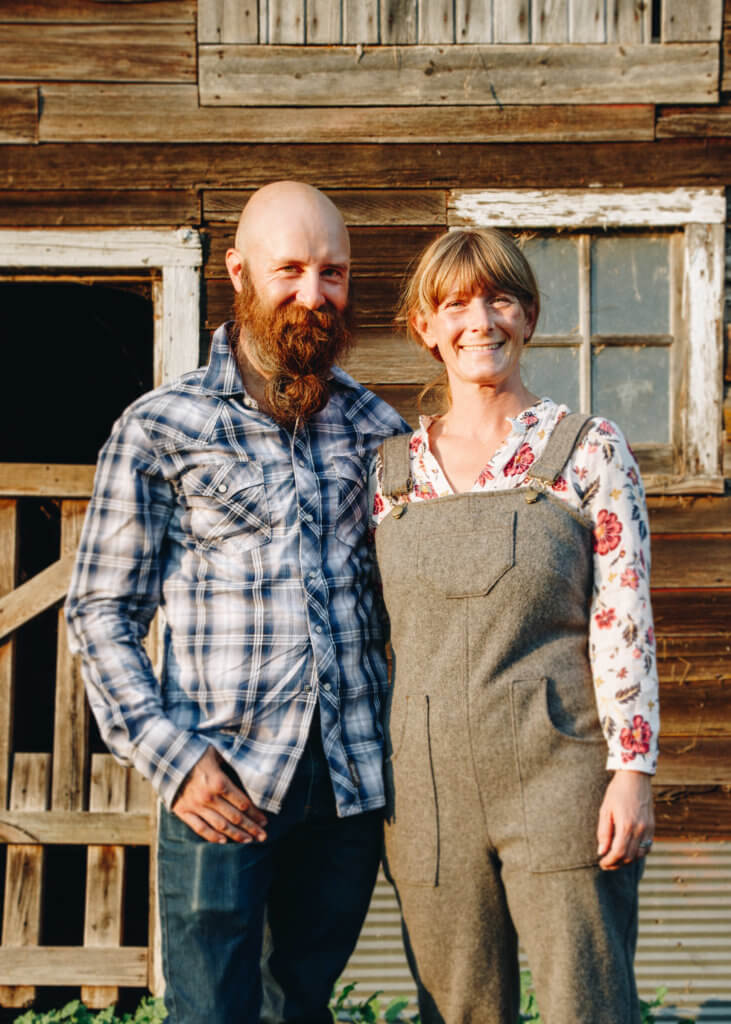 After a life in the city and suburbs, Theresa and Jake Bentz wanted a closer connection to their food and became first-generation sheep farmers. Get Bentz Farm is located on 40 acres near Northfield, Minnesota. "There's so much we didn't grow up with and we're learning every day." Theresa credits her community for their support of small, sustainable farms. We all wear a lot of different hats, making it difficult to sustain a work-life balance. "There are times I'm really good at keeping all the balls in the air and rocking it, but there are also times when the balls drop and that's okay." In the TransFARMation podcast, Theresa also highlights the teamwork seen on the farm. "Our kiddos get to watch Mom and Dad run a business in our home and watch us work together. which is cool for kids to see; maybe that's how it should be." Listen to the full podcast episode with Theresa Bentz.
After a life in the city and suburbs, Theresa and Jake Bentz wanted a closer connection to their food and became first-generation sheep farmers. Get Bentz Farm is located on 40 acres near Northfield, Minnesota. "There's so much we didn't grow up with and we're learning every day." Theresa credits her community for their support of small, sustainable farms. We all wear a lot of different hats, making it difficult to sustain a work-life balance. "There are times I'm really good at keeping all the balls in the air and rocking it, but there are also times when the balls drop and that's okay." In the TransFARMation podcast, Theresa also highlights the teamwork seen on the farm. "Our kiddos get to watch Mom and Dad run a business in our home and watch us work together. which is cool for kids to see; maybe that's how it should be." Listen to the full podcast episode with Theresa Bentz.
Episode Description: 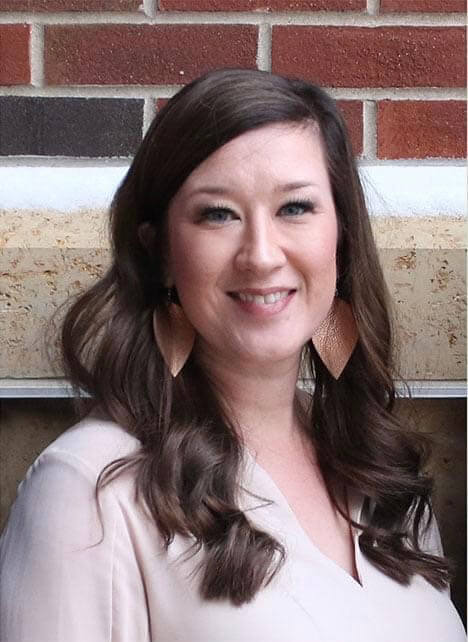 Highly Pathogenic Avian Influenza has spread to more than 30 states and has affected millions of birds. The commercial poultry industry went through a similar outbreak in 2015. Erica Sawatzke is a turkey grower from Kennsington, Minnesota and chairs the Minnesota Board of Animal Health. "We're fortunate that my farm has not gotten it yet, but you always have this fear of who's next." Farmers are in the food business and the concept of euthanizing the flock has a financial and emotional toll on growers. "It's just a helpless feeling." In this episode of TransFARMation, Sawatzke shares her unique perspective about this deadly disease. Learn more in this edition of the TransFARMation podcast.
Highly Pathogenic Avian Influenza has spread to more than 30 states and has affected millions of birds. The commercial poultry industry went through a similar outbreak in 2015. Erica Sawatzke is a turkey grower from Kennsington, Minnesota and chairs the Minnesota Board of Animal Health. "We're fortunate that my farm has not gotten it yet, but you always have this fear of who's next." Farmers are in the food business and the concept of euthanizing the flock has a financial and emotional toll on growers. "It's just a helpless feeling." In this episode of TransFARMation, Sawatzke shares her unique perspective about this deadly disease. Learn more in this edition of the TransFARMation podcast.
Episode Description: 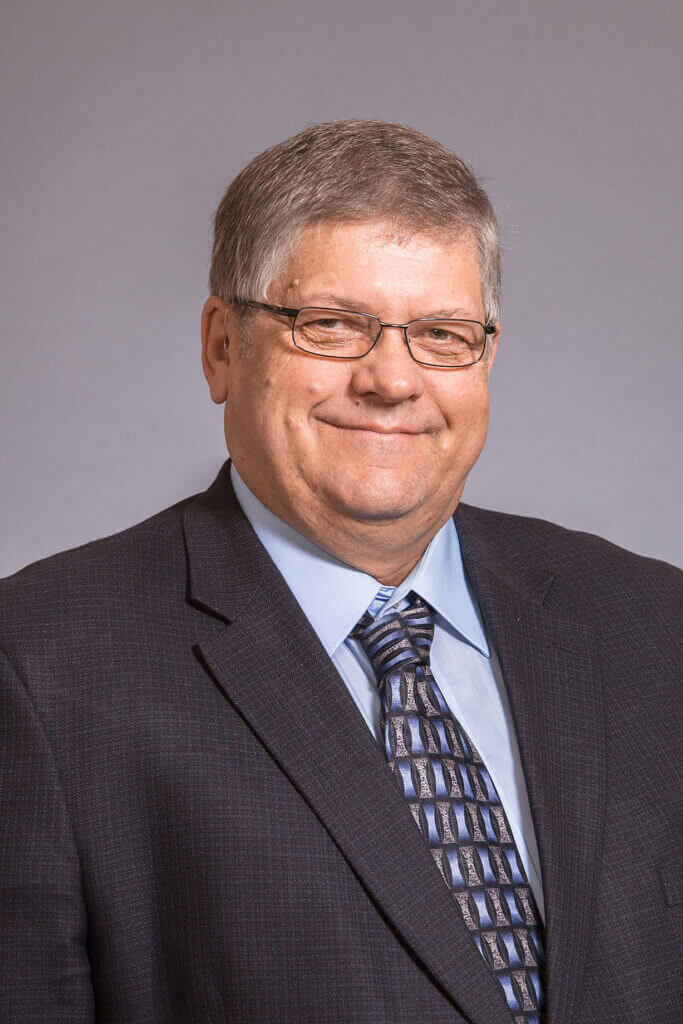 Lake Benton, Minnesota farmer Bob Worth was a 'young gun' when he began farming 50 years ago until the farm crisis of the 1980s hit, taking its toll. As a result, he went into a severe case of depression. "It was so bad I didn't even care if I got out of bed. Even if harvest was there, I didn't care; it (the crop) could stay there." Bob's wife convinced him to go see a doctor. "I'm glad she did. The doctor put be on some medicine and diagnosed me with severe depression." As a past president of the Minnesota Soybean Growers Association, Bob has been vocal about his experience with depression. There are some similarities between the 1980s and the tough farm economy of today. Worth leaves listeners with this piece of advice. "Communication is so important, especially during times of stress." Hear more in the latest TransFARMation podcast.
Lake Benton, Minnesota farmer Bob Worth was a 'young gun' when he began farming 50 years ago until the farm crisis of the 1980s hit, taking its toll. As a result, he went into a severe case of depression. "It was so bad I didn't even care if I got out of bed. Even if harvest was there, I didn't care; it (the crop) could stay there." Bob's wife convinced him to go see a doctor. "I'm glad she did. The doctor put be on some medicine and diagnosed me with severe depression." As a past president of the Minnesota Soybean Growers Association, Bob has been vocal about his experience with depression. There are some similarities between the 1980s and the tough farm economy of today. Worth leaves listeners with this piece of advice. "Communication is so important, especially during times of stress." Hear more in the latest TransFARMation podcast.
Episode Description:  Due the supply chain headaches, farmers are dealing with shortages of certain crop protection products, fertilizer and farm machinery parts. Farmer and crop consultant Curt Burns, who is based at Stewart, Minnesota, discusses the anxiety faced by growers this spring. When making a visit to his farm clients, Burns says the conversation nearly always turns to the angst and nervousness in production agriculture today. "You talk about this in the shop or the kitchen table and it is more like being a counselor than an agronomy person." Burns has practical advice in this edition of TransFARMation.
Due the supply chain headaches, farmers are dealing with shortages of certain crop protection products, fertilizer and farm machinery parts. Farmer and crop consultant Curt Burns, who is based at Stewart, Minnesota, discusses the anxiety faced by growers this spring. When making a visit to his farm clients, Burns says the conversation nearly always turns to the angst and nervousness in production agriculture today. "You talk about this in the shop or the kitchen table and it is more like being a counselor than an agronomy person." Burns has practical advice in this edition of TransFARMation.
Episode Description: 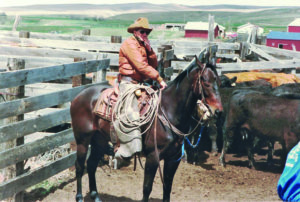 Drought is a reality for many farmers and ranchers this year. 90-year-old rancher C. Wayne Vance, who lives at Ray, North Dakota, has been through these conditions before. "In 1961 we were really dry and hardly raised a crop," says Vance. "Then 1962 came along and it did finally rain. There is still hope; it will rain one of these days." To still be ranching at 90, Vance certainly enjoys his job. His advice for young ranchers battling drought conditions is to keep your chin up. "It's been a tough year ever since COVID hit, but you have to keep going." Vance shares his story in the latest TransFARMation podcast.
Drought is a reality for many farmers and ranchers this year. 90-year-old rancher C. Wayne Vance, who lives at Ray, North Dakota, has been through these conditions before. "In 1961 we were really dry and hardly raised a crop," says Vance. "Then 1962 came along and it did finally rain. There is still hope; it will rain one of these days." To still be ranching at 90, Vance certainly enjoys his job. His advice for young ranchers battling drought conditions is to keep your chin up. "It's been a tough year ever since COVID hit, but you have to keep going." Vance shares his story in the latest TransFARMation podcast.
Episode Description: 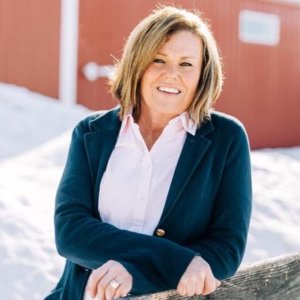 Crop insurance professional Mary Ebnet was diagnosed with severe coronary artery disease three years ago. That came after an original misdiagnosis. Mary says it is important to be your own health advocate. "Hind site being 20/20, I look back on that day I was in the clinic during the Christmas holiday. My gut told me right then this doesn't seem right." Mary encourages others to give that gut impression more credibility. This life changing event also served as a reminder to adjust her 'to-do' list. "People always have this mental checklist. I'm as guilty as anyone and that list of things that need to get done creates this anxiety." That's why Mary tries to never have more than three things on her list at a time. "When you complete that list, it's amazing how your brain reacts to that accomplishment." Hear more in the latest TransFARMation podcast.
Crop insurance professional Mary Ebnet was diagnosed with severe coronary artery disease three years ago. That came after an original misdiagnosis. Mary says it is important to be your own health advocate. "Hind site being 20/20, I look back on that day I was in the clinic during the Christmas holiday. My gut told me right then this doesn't seem right." Mary encourages others to give that gut impression more credibility. This life changing event also served as a reminder to adjust her 'to-do' list. "People always have this mental checklist. I'm as guilty as anyone and that list of things that need to get done creates this anxiety." That's why Mary tries to never have more than three things on her list at a time. "When you complete that list, it's amazing how your brain reacts to that accomplishment." Hear more in the latest TransFARMation podcast.
Episode Description: 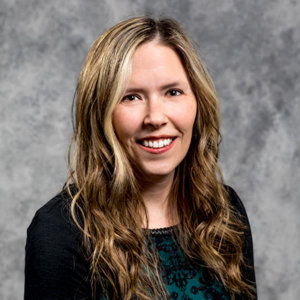 Agriculture is a stressful business, but that has certainly intensified during COVID-19. South Dakota State University Extension mental health specialist Andrea Bjornestad says the pandemic has definitely increased stress levels. "It adds more stress on top of what agricultural producers are experiencing over time. They are facing financial difficulties with closures and market prices." Parents have also had to determine childcare or home school their children. However, there is some positive news coming from the situation. "The more we talk about it (mental health), the more likely people will think that they're not alone." Hear more from Bjornestad in the latest TransFARMation podcast.
Agriculture is a stressful business, but that has certainly intensified during COVID-19. South Dakota State University Extension mental health specialist Andrea Bjornestad says the pandemic has definitely increased stress levels. "It adds more stress on top of what agricultural producers are experiencing over time. They are facing financial difficulties with closures and market prices." Parents have also had to determine childcare or home school their children. However, there is some positive news coming from the situation. "The more we talk about it (mental health), the more likely people will think that they're not alone." Hear more from Bjornestad in the latest TransFARMation podcast.
Episode Description: 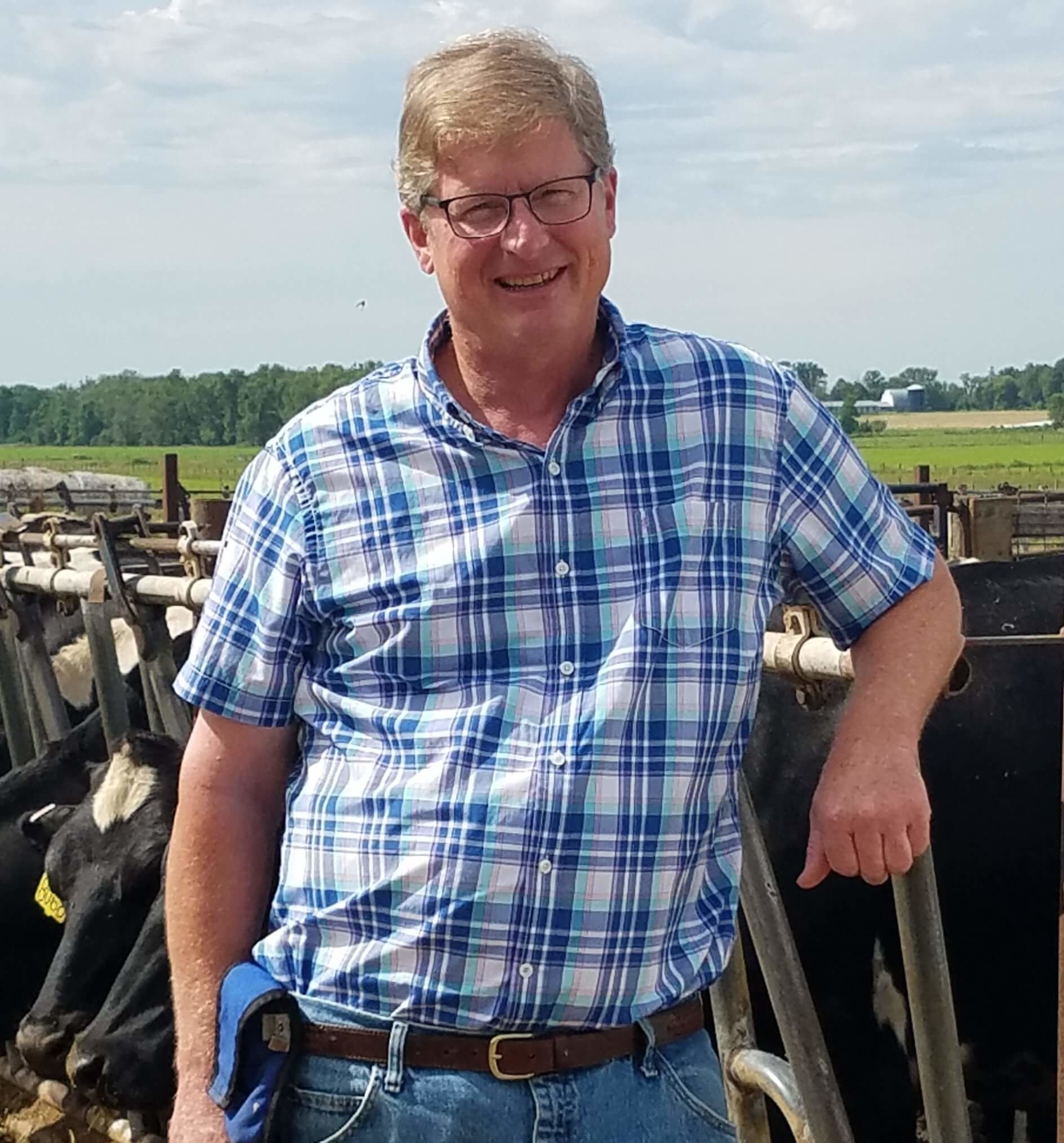 Clarissa, Minnesota dairy farmer Patrick Lunemann has his own personal experience with the coronavirus pandemic. At the same time, the Long Prairie community in Todd County was experiencing a high number of cases. "We did have a couple of confirmed cases at our dairy farm. I believe it was more than just those two and I believe I had it," explains Lunemann. "I didn't get a test, but I had the same symptoms at the same time as the two that tested positive. Therefore, I went through the appropriate quarantining practices." It is difficult to work through the COVID-19 crisis, Lunemann adds. Getting the works done was a challenge, especially since labor is generally a challenge in agriculture. "When we're milking basically around the clock, you need people to fill those shifts. Losing even a couple people creates a big hole in the schedule. It was not easy." Hear more from Lunemann in the latest TransFARMation episode.
Clarissa, Minnesota dairy farmer Patrick Lunemann has his own personal experience with the coronavirus pandemic. At the same time, the Long Prairie community in Todd County was experiencing a high number of cases. "We did have a couple of confirmed cases at our dairy farm. I believe it was more than just those two and I believe I had it," explains Lunemann. "I didn't get a test, but I had the same symptoms at the same time as the two that tested positive. Therefore, I went through the appropriate quarantining practices." It is difficult to work through the COVID-19 crisis, Lunemann adds. Getting the works done was a challenge, especially since labor is generally a challenge in agriculture. "When we're milking basically around the clock, you need people to fill those shifts. Losing even a couple people creates a big hole in the schedule. It was not easy." Hear more from Lunemann in the latest TransFARMation episode.
Episode Description: 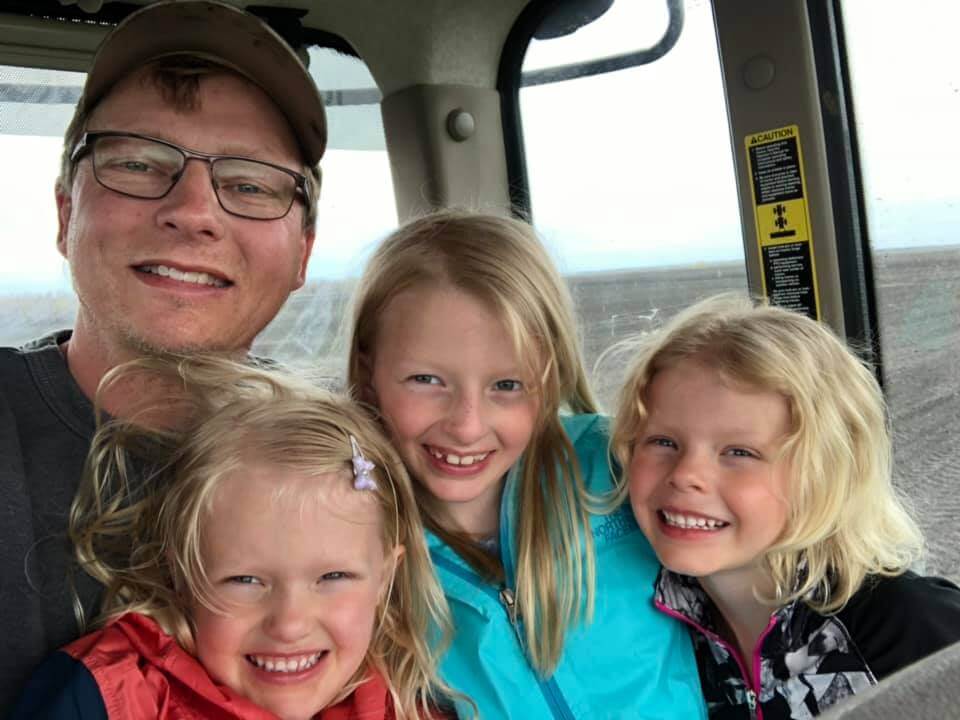 Coping with coronavirus is a reality for everyone. Hallock, Minnesota farmer Erik Younggren says this pandemic impacts the entire family. "My oldest child is nine years old and the two other girls are six. They haven't seen most of their friends since March. I guess we'll see what happens this fall with school," says Younggren. "They are growing up not having all those social interactions they need." On the farm, Younggren is concerned about labor. There is a lot of planning that never was an issue before. "The biggest challenge for us will be sugarbeet harvest. How do we handle things like sanitizing trucks, the regiment at the piles and just managing a lot of people?"
Coping with coronavirus is a reality for everyone. Hallock, Minnesota farmer Erik Younggren says this pandemic impacts the entire family. "My oldest child is nine years old and the two other girls are six. They haven't seen most of their friends since March. I guess we'll see what happens this fall with school," says Younggren. "They are growing up not having all those social interactions they need." On the farm, Younggren is concerned about labor. There is a lot of planning that never was an issue before. "The biggest challenge for us will be sugarbeet harvest. How do we handle things like sanitizing trucks, the regiment at the piles and just managing a lot of people?"
Episode Description: 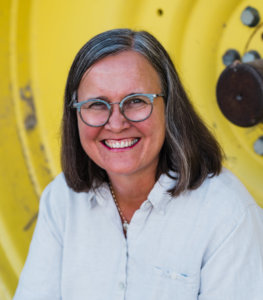 It is easy to burnt out, especially in this COVID-19 world. Family farm coach Elaine Froese encourages farmers and ranchers to consider the roles they have in life. "How are you practicing self care," asks Froese. "How well are you taking care of your marriage? How are you nurturing your family? For examples, there has certainly been great stress on families have children home from school." To avoid burnout, Elaine has a simple strategy. "On our farm in Manitoba, Canada, we actually don't work on Sundays. People think that is weird, but for us it works because it gives us much needed downtime and family time. At the end of the day, our work still gets done during the week." Find out more from Froese in the latest TransFARMation podcast, found here.
It is easy to burnt out, especially in this COVID-19 world. Family farm coach Elaine Froese encourages farmers and ranchers to consider the roles they have in life. "How are you practicing self care," asks Froese. "How well are you taking care of your marriage? How are you nurturing your family? For examples, there has certainly been great stress on families have children home from school." To avoid burnout, Elaine has a simple strategy. "On our farm in Manitoba, Canada, we actually don't work on Sundays. People think that is weird, but for us it works because it gives us much needed downtime and family time. At the end of the day, our work still gets done during the week." Find out more from Froese in the latest TransFARMation podcast, found here.
Episode Description: 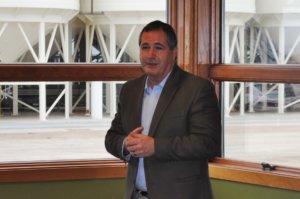 From low commodity prices to weather extremes, there are so many things coming at farmers and ranchers right now in the world of agriculture. North Dakota Agriculture Commissioner Doug Goehring says there also are milestones that should be celebrated each season. "Although the work is never done, we have incremental victories here and there. You get equipment ready. You get planting done. You get spraying done. You get harvest done. At some point it all comes together." Goehring goes on to say these small victories make them feel like they've accomplished something. Farmers and rancher are truly the enteral optimists and realists. "There are things to celebrate in agriculture. That helps," explains Goehring. "It's like when you finish calving. When that last heifer or cow drops her calf it's a sigh of relief. A lot of worry goes away." Hear more from Goehring in the latest TransFARMation podcast.
From low commodity prices to weather extremes, there are so many things coming at farmers and ranchers right now in the world of agriculture. North Dakota Agriculture Commissioner Doug Goehring says there also are milestones that should be celebrated each season. "Although the work is never done, we have incremental victories here and there. You get equipment ready. You get planting done. You get spraying done. You get harvest done. At some point it all comes together." Goehring goes on to say these small victories make them feel like they've accomplished something. Farmers and rancher are truly the enteral optimists and realists. "There are things to celebrate in agriculture. That helps," explains Goehring. "It's like when you finish calving. When that last heifer or cow drops her calf it's a sigh of relief. A lot of worry goes away." Hear more from Goehring in the latest TransFARMation podcast.
Episode Description: 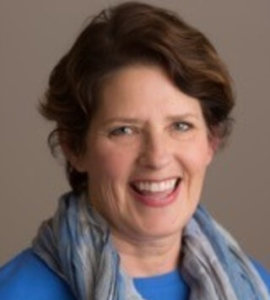 The weather, markets, coronavirus; these are all things that can crank up anxiety levels. Oak Ridge Teletherapy therapist Cynthie Christensen likes to think of anxiety as an emotion of the future. "Typically when we feel anxious, it's because of those 'what if' thoughts. During this time we usually don't think about the good stuff like a bountiful harvest," she says. "That can really get you stirred up and create a lot of fear." Christensen says the first step is to recognize you're thinking about stuff that is too far forward that can't be predicted. "Bring those thoughts back. What can you do today? What do you have control over right now?" In some cases, a farmer or rancher may need help controlling these thoughts. "There is a stigma associated with therapy and no one wants to be seen as crazy. But really it's more about managing symptoms." Cynthie offers more advice about handling stressful times in this TransFARMation episode.
The weather, markets, coronavirus; these are all things that can crank up anxiety levels. Oak Ridge Teletherapy therapist Cynthie Christensen likes to think of anxiety as an emotion of the future. "Typically when we feel anxious, it's because of those 'what if' thoughts. During this time we usually don't think about the good stuff like a bountiful harvest," she says. "That can really get you stirred up and create a lot of fear." Christensen says the first step is to recognize you're thinking about stuff that is too far forward that can't be predicted. "Bring those thoughts back. What can you do today? What do you have control over right now?" In some cases, a farmer or rancher may need help controlling these thoughts. "There is a stigma associated with therapy and no one wants to be seen as crazy. But really it's more about managing symptoms." Cynthie offers more advice about handling stressful times in this TransFARMation episode.
Episode Description: 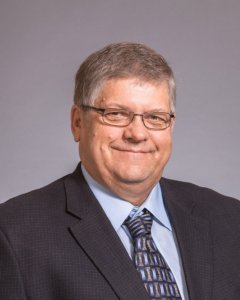 Lake Benton, Minnesota farmer Bob Worth was a 'young gun' when he began farming 50 years ago until the farm crisis of the 1980s hit, taking its toll. As a result, he went in to a severe case of depression. "It was so bad I didn't even care if I got out of bed. Even if harvest was there, I didn't care; it (the crop) could stay there." Bob's wife convinced him to go see a doctor. "I'm glad she did. The doctor put be on some medicine and diagnosed me with severe depression." As a past president of the Minnesota Soybean Growers Association, Bob has been vocal about his experience with depression. There are some similarities between the 1980s and the tough farm economy of today. "Six or seven years ago, we were flying as high as agriculture has ever flew. We were making good money and never though it could end. Well, guess what, it does end and that's a lot of the shock." Worth sees some of his fellows farmers struggling today and tries to get them to open up. He leaves listeners with this piece of advice. "Communication is so important, especially during times of stress." Hear more in the latest TransFARMation podcast found above.
Lake Benton, Minnesota farmer Bob Worth was a 'young gun' when he began farming 50 years ago until the farm crisis of the 1980s hit, taking its toll. As a result, he went in to a severe case of depression. "It was so bad I didn't even care if I got out of bed. Even if harvest was there, I didn't care; it (the crop) could stay there." Bob's wife convinced him to go see a doctor. "I'm glad she did. The doctor put be on some medicine and diagnosed me with severe depression." As a past president of the Minnesota Soybean Growers Association, Bob has been vocal about his experience with depression. There are some similarities between the 1980s and the tough farm economy of today. "Six or seven years ago, we were flying as high as agriculture has ever flew. We were making good money and never though it could end. Well, guess what, it does end and that's a lot of the shock." Worth sees some of his fellows farmers struggling today and tries to get them to open up. He leaves listeners with this piece of advice. "Communication is so important, especially during times of stress." Hear more in the latest TransFARMation podcast found above.
Episode Description: 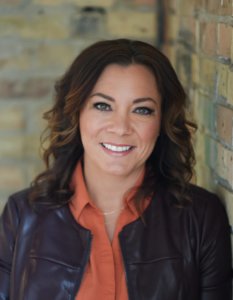 Animal agriculture is dealing with an unprecedented situation with processing plant slowdowns and closures. During this difficult time, Minnesota Pork Board President JoDee Haala, who also serves as director of public affairs at Christensen Farms, says it's important to communicate with your peers. "Rely on the network of people you have who are also going through the same thing you are. It is uncomfortable to talk about if you are struggling financially on the farm, but there are a lot of friendly people out there in agriculture that just want to help." Haala goes on to say that's what makes agriculture so great; open ears and support for one another. With hogs backing up in the system, those farmers are making the difficult decision to euthanize animals. "It is absolutely a time of grieving. When you get up and think about everything you do, you make food for human consumption that is being turned to waste when people are hungry. That's heavy." Hear more from JoDee in the latest TransFARMation podcast episode here.
Animal agriculture is dealing with an unprecedented situation with processing plant slowdowns and closures. During this difficult time, Minnesota Pork Board President JoDee Haala, who also serves as director of public affairs at Christensen Farms, says it's important to communicate with your peers. "Rely on the network of people you have who are also going through the same thing you are. It is uncomfortable to talk about if you are struggling financially on the farm, but there are a lot of friendly people out there in agriculture that just want to help." Haala goes on to say that's what makes agriculture so great; open ears and support for one another. With hogs backing up in the system, those farmers are making the difficult decision to euthanize animals. "It is absolutely a time of grieving. When you get up and think about everything you do, you make food for human consumption that is being turned to waste when people are hungry. That's heavy." Hear more from JoDee in the latest TransFARMation podcast episode here.
Episode Description: 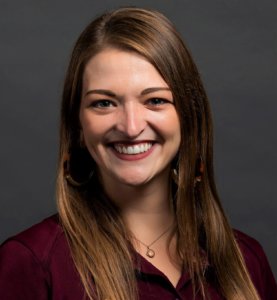 The coronavirus outbreak has impacted everyone. When it comes to farmers and ranchers, University of Minnesota Rural Stress Task Force Director Emily Krekelberg says COVID-19 has been devastating for the markets. "That is stressing an already stressed population," Krekelberg explains. That stress is being compounded by uncertainty. "I don't think anyone is immune to that (stress). We all are feeling the pressure from it in some way, shape or form." Coping strategies are critical. That's why it's important to connect with family and friends, especially during this time of social distancing. There are three aspects to wellness: physical, mental and emotional. "A lot of things we can do to take care of ourselves really touches on two or all three of those aspects. I remind people all the time that self care is not selfish. It's little things done everyday to make sure we are well." Hear more from Emily in the latest TransFARMation podcast episode.
The coronavirus outbreak has impacted everyone. When it comes to farmers and ranchers, University of Minnesota Rural Stress Task Force Director Emily Krekelberg says COVID-19 has been devastating for the markets. "That is stressing an already stressed population," Krekelberg explains. That stress is being compounded by uncertainty. "I don't think anyone is immune to that (stress). We all are feeling the pressure from it in some way, shape or form." Coping strategies are critical. That's why it's important to connect with family and friends, especially during this time of social distancing. There are three aspects to wellness: physical, mental and emotional. "A lot of things we can do to take care of ourselves really touches on two or all three of those aspects. I remind people all the time that self care is not selfish. It's little things done everyday to make sure we are well." Hear more from Emily in the latest TransFARMation podcast episode.
Episode Description: 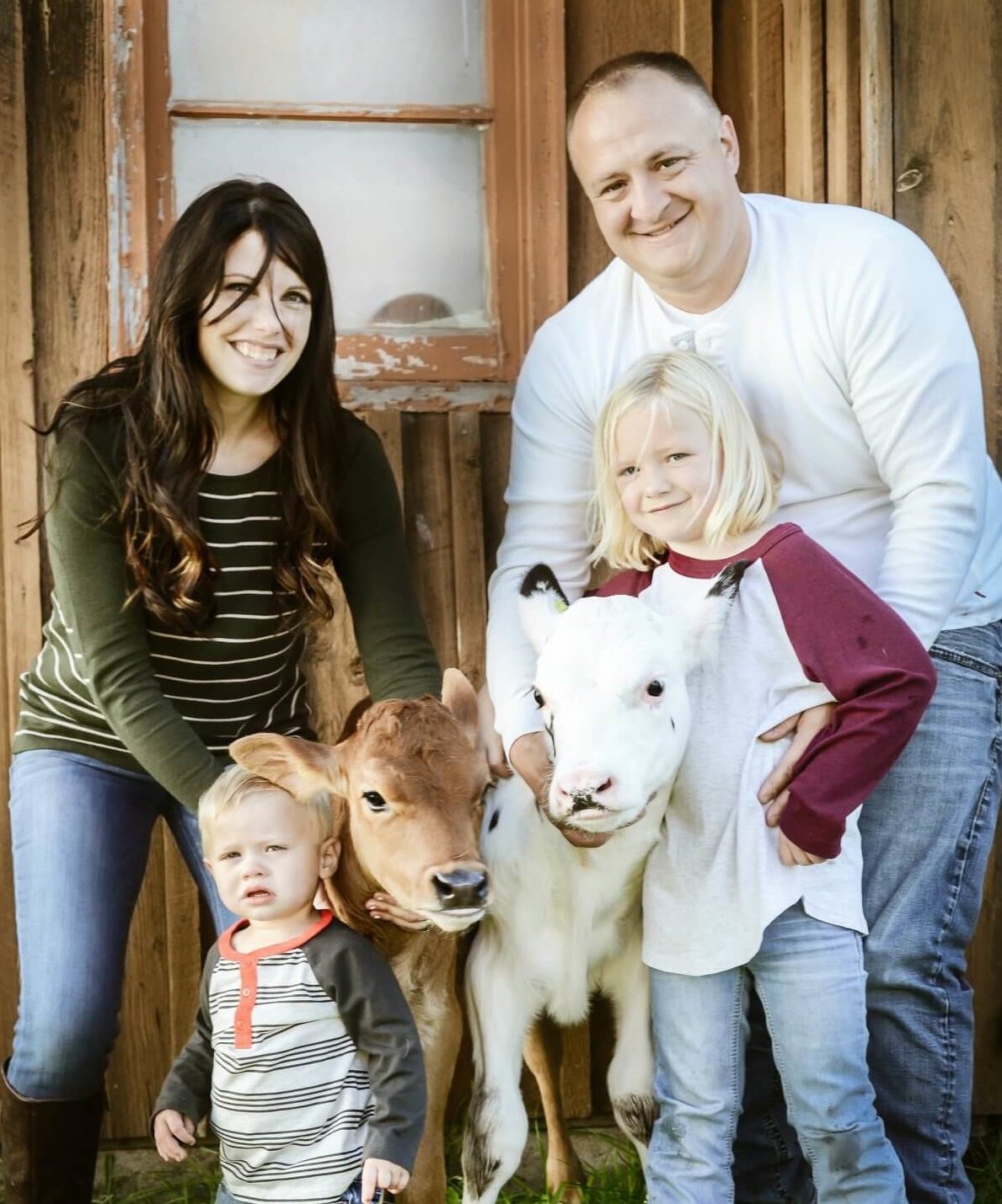 Thomas Duden, who farms in east central Minnesota, has been fighting a battle with depression over the past two years. Thomas says accepting the fact you have depression is hard; asking for help is even harder. It has taken a while for him to open up, but Duden's biggest piece of advice is to just keep talking. "It's not easy. If you can find someone that is easy to talk to and can trust, talk to them because I shut completely down." Thomas's wife Kristin adds there is no shame in asking for help from a professional. "Know that you're not alone and that there are so many more people also struggling," she says. "I definitely give kudos to anyone that goes out and gets help. That has really been a silver lining for Thomas." Hear more from the Dudens in this TransFARMation podcast episode.
Thomas Duden, who farms in east central Minnesota, has been fighting a battle with depression over the past two years. Thomas says accepting the fact you have depression is hard; asking for help is even harder. It has taken a while for him to open up, but Duden's biggest piece of advice is to just keep talking. "It's not easy. If you can find someone that is easy to talk to and can trust, talk to them because I shut completely down." Thomas's wife Kristin adds there is no shame in asking for help from a professional. "Know that you're not alone and that there are so many more people also struggling," she says. "I definitely give kudos to anyone that goes out and gets help. That has really been a silver lining for Thomas." Hear more from the Dudens in this TransFARMation podcast episode.
Episode Description: 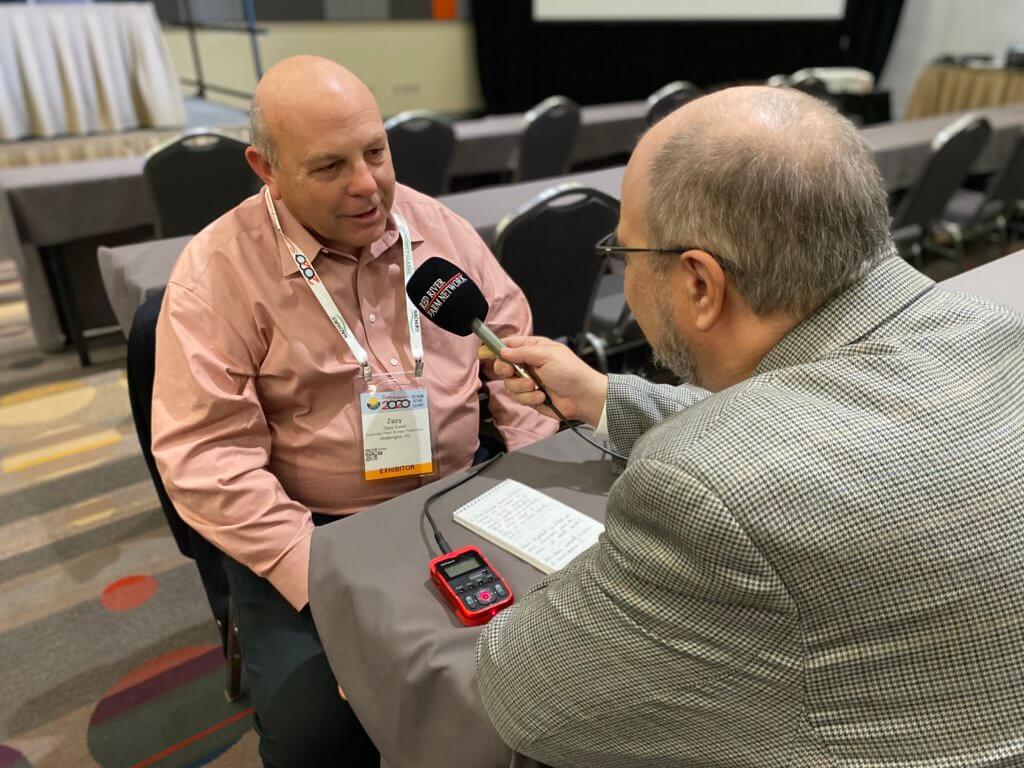 Farmers are generally proud, independent and private people. American Farm Bureau Federation President Zippy Duvall says we need to move beyond that. “We have to seize the potential in being able to heal ourselves by talking to someone,” said Duvall. “Whether it is a professional, a pastor or a friend, we need to find some way to let that out.” Zippy’s wife, Bonnie, passed away January 18, 2020 after a nine-year battle with cancer. “The first two weeks after that, I was holding it all inside and I was about to bust. All of a sudden, I started talking about it and it became easier.” Duvall shares his personal and emotional story in this TransFARMation episode and the importance of faith. You’ll also learn about AFBF initiatives dealing with farm stress and mental health.
Farmers are generally proud, independent and private people. American Farm Bureau Federation President Zippy Duvall says we need to move beyond that. “We have to seize the potential in being able to heal ourselves by talking to someone,” said Duvall. “Whether it is a professional, a pastor or a friend, we need to find some way to let that out.” Zippy’s wife, Bonnie, passed away January 18, 2020 after a nine-year battle with cancer. “The first two weeks after that, I was holding it all inside and I was about to bust. All of a sudden, I started talking about it and it became easier.” Duvall shares his personal and emotional story in this TransFARMation episode and the importance of faith. You’ll also learn about AFBF initiatives dealing with farm stress and mental health.
Episode Description: 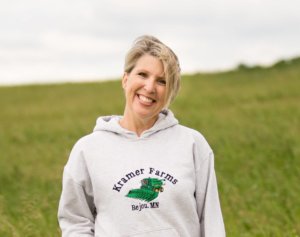 There are still crops in the field and finances are tight. "These issues can be overwhelming," says Minnesota's newest rural mental health specialist Monica McConkey. "A lot of farmers are in chronic stress situations, having been very stressed for several years." McConkey goes on to say that causes them to go into an avoidance phase. "If farmers aren't understanding the programs available to help them, they just decide not to try or let a person they're working with handle it." Again, the current economic times can be overwhelming. Hear more about how to better navigate the programs available in the latest episode of TransFARMation.
There are still crops in the field and finances are tight. "These issues can be overwhelming," says Minnesota's newest rural mental health specialist Monica McConkey. "A lot of farmers are in chronic stress situations, having been very stressed for several years." McConkey goes on to say that causes them to go into an avoidance phase. "If farmers aren't understanding the programs available to help them, they just decide not to try or let a person they're working with handle it." Again, the current economic times can be overwhelming. Hear more about how to better navigate the programs available in the latest episode of TransFARMation.
Episode Description: 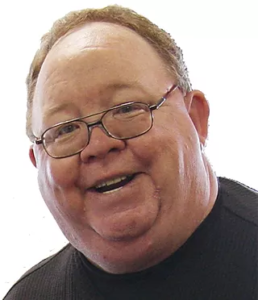 Bob "Mr. Attitude" Prentice roots in agriculture, coming from the Wessington, South Dakota area. So, how important is attitude in agriculture? "Attitude is everything, or at least I believe it is," says Bob. "It's not always about having a positive attitude, but more of a proper mental attitude. It's about being able to find a creative and innovative way to take on the challenges in life." Hear more in the latest edition of the TransFARMation podcast.
[audio mp3="https://www.rrfn.com/wp-content/uploads/2020/02/020320-TransFARMation-Prentice.mp3"][/audio]
Bob "Mr. Attitude" Prentice roots in agriculture, coming from the Wessington, South Dakota area. So, how important is attitude in agriculture? "Attitude is everything, or at least I believe it is," says Bob. "It's not always about having a positive attitude, but more of a proper mental attitude. It's about being able to find a creative and innovative way to take on the challenges in life." Hear more in the latest edition of the TransFARMation podcast.
[audio mp3="https://www.rrfn.com/wp-content/uploads/2020/02/020320-TransFARMation-Prentice.mp3"][/audio]
Episode Description: 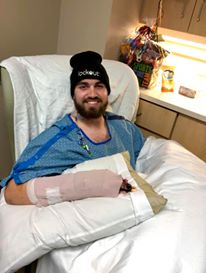 Binford, North Dakota farmer and rancher Tanner Overby's life changed nearly one year ago on January 30, 2019 when both of his hands got caught in a feed mixer wagon. There were extensive injuries to his hands and arm and he went through 12 surgeries in 30 days. Here's Tanner's advice for others going through a similar, traumatic situation. "Let people help you. I know it's hard to keep your head up with something like that, but moping and feeling sorry for yourself is going to make everyone around you miserable. Just try and take the high road; look at the positive." There was family, the community and people that Tanner had never met before giving him words of encouragement. "It was unreal; everyone was willing to help," says Overby. "There are a lot of good people out there. I was lucky to be from this small community when it happened." Tanner is engaged to Red River Farm Network farm broadcaster Megan Ternquist. Hear more from the couple in this episode of TransFARMation.
Binford, North Dakota farmer and rancher Tanner Overby's life changed nearly one year ago on January 30, 2019 when both of his hands got caught in a feed mixer wagon. There were extensive injuries to his hands and arm and he went through 12 surgeries in 30 days. Here's Tanner's advice for others going through a similar, traumatic situation. "Let people help you. I know it's hard to keep your head up with something like that, but moping and feeling sorry for yourself is going to make everyone around you miserable. Just try and take the high road; look at the positive." There was family, the community and people that Tanner had never met before giving him words of encouragement. "It was unreal; everyone was willing to help," says Overby. "There are a lot of good people out there. I was lucky to be from this small community when it happened." Tanner is engaged to Red River Farm Network farm broadcaster Megan Ternquist. Hear more from the couple in this episode of TransFARMation.
Episode Description: 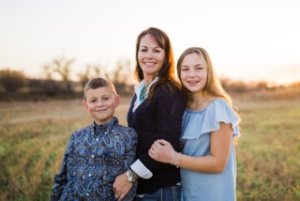 On November 6, 2012, Jack and Mardee Reich and their son, Vander, were returning home from Mayo Clinic where Vander was being treated for a brain tumor. They made it a short way when the family was involved in a tragic automobile accident. Jack and Vander died in that collision and Mardee was seriously injured. Jack was a well-known Angus breeder and a leader in the North Dakota Stockmen's Association and National Cattlemen's Beef Association. In this episode of TransFARMation, Mardee shares this very personal story. Mardee continues to operate the Zap, North Dakota ranch. "I knew I didn't want to make another life-changing decision at that moment; I had enough change." People often say grief goes away with time. "I don't think that's true," said Mardee. "When time passes, you learn to tolerate it. The grief process is the hardest thing a person would ever have to do, trying to move forward after sustaining a loss." For others dealing with loss, Mardee said they shouldn't ever be afraid to ask for help.
On November 6, 2012, Jack and Mardee Reich and their son, Vander, were returning home from Mayo Clinic where Vander was being treated for a brain tumor. They made it a short way when the family was involved in a tragic automobile accident. Jack and Vander died in that collision and Mardee was seriously injured. Jack was a well-known Angus breeder and a leader in the North Dakota Stockmen's Association and National Cattlemen's Beef Association. In this episode of TransFARMation, Mardee shares this very personal story. Mardee continues to operate the Zap, North Dakota ranch. "I knew I didn't want to make another life-changing decision at that moment; I had enough change." People often say grief goes away with time. "I don't think that's true," said Mardee. "When time passes, you learn to tolerate it. The grief process is the hardest thing a person would ever have to do, trying to move forward after sustaining a loss." For others dealing with loss, Mardee said they shouldn't ever be afraid to ask for help.
Episode Description: 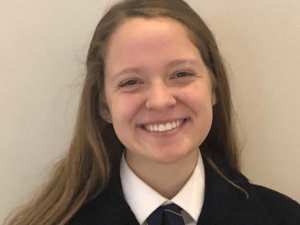 Stress is certainly a reality in agriculture today. That stress also extends to children on the farm. Maddie Smith's family farms in southeastern Minnesota. While Maddie may only be a freshman in college, she recognizes what is happening on the family farm. "Times have been tough for the last several years. I really don't remember growing up in a time when farming was good," she explains. "We definitely see what's happening with our parents and grandparents. I think something that is easy to overlook is it is happening to us, too." Parents often want to protect their kids and shield them from financial challenges on the farm. "Which is almost worse. It's like being left in the shadows," says Smith. " I love being on the farm, don't get me wrong, but at the same time it's kind of a cruel reminder of what's happening. We're losing money even though it's something we love to do." Hear more from Maddie in the latest TransFARMation podcast.
Stress is certainly a reality in agriculture today. That stress also extends to children on the farm. Maddie Smith's family farms in southeastern Minnesota. While Maddie may only be a freshman in college, she recognizes what is happening on the family farm. "Times have been tough for the last several years. I really don't remember growing up in a time when farming was good," she explains. "We definitely see what's happening with our parents and grandparents. I think something that is easy to overlook is it is happening to us, too." Parents often want to protect their kids and shield them from financial challenges on the farm. "Which is almost worse. It's like being left in the shadows," says Smith. " I love being on the farm, don't get me wrong, but at the same time it's kind of a cruel reminder of what's happening. We're losing money even though it's something we love to do." Hear more from Maddie in the latest TransFARMation podcast.
Episode Description: 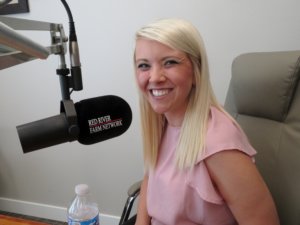 As a teenager, McKenzie Darling was hospitalized for suicidal ideation. The Langdon, North Dakota native has also had family members and friends that died by suicide. Today, Darling is a mental health advocate who speaks frequently on the warning signs of suicide and trying to “restore hope for those who are feeling hopeless.” Darling sees a need to break down the wall of stigma about mental health. Darling comes from a farming family and says there are many things that are out of the farmer’s control. “You can’t control the rain, hail or what your neighbor is spraying on a windy day.” While it’s okay to be upset or feel anxious, McKenzie encourages farmers to find someone to talk with about it. “It can be a fellow farmer or your best friend. You just need to get that anger or sadness out of your system so you can refill and be ready to go again.” Hear more from McKenzie in the latest edition of TransFARMation.
As a teenager, McKenzie Darling was hospitalized for suicidal ideation. The Langdon, North Dakota native has also had family members and friends that died by suicide. Today, Darling is a mental health advocate who speaks frequently on the warning signs of suicide and trying to “restore hope for those who are feeling hopeless.” Darling sees a need to break down the wall of stigma about mental health. Darling comes from a farming family and says there are many things that are out of the farmer’s control. “You can’t control the rain, hail or what your neighbor is spraying on a windy day.” While it’s okay to be upset or feel anxious, McKenzie encourages farmers to find someone to talk with about it. “It can be a fellow farmer or your best friend. You just need to get that anger or sadness out of your system so you can refill and be ready to go again.” Hear more from McKenzie in the latest edition of TransFARMation.
Episode Description: 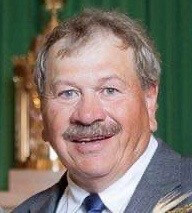 Farming and ranching can be overwhelming at times. That's why Minnesota, along with other states, have a Farm Advocate program to help farmers maneuver through the current farm economy. "It's going to be okay, we're going to figure out what we need to do," says Steve Zenk, farm advocate. "In some situations you might not be able to do what you're doing now, but we should be able to move you forward somehow." Zenk encourages farmers to be proactive. "Get on top of this, don't wait." That may mean having a frank conversation with your lender. "If you're going to be short, communication is important. Just go in and have a visit." Hear more from Zenk in this edition of TransFARMation.
Farming and ranching can be overwhelming at times. That's why Minnesota, along with other states, have a Farm Advocate program to help farmers maneuver through the current farm economy. "It's going to be okay, we're going to figure out what we need to do," says Steve Zenk, farm advocate. "In some situations you might not be able to do what you're doing now, but we should be able to move you forward somehow." Zenk encourages farmers to be proactive. "Get on top of this, don't wait." That may mean having a frank conversation with your lender. "If you're going to be short, communication is important. Just go in and have a visit." Hear more from Zenk in this edition of TransFARMation.
Episode Description: 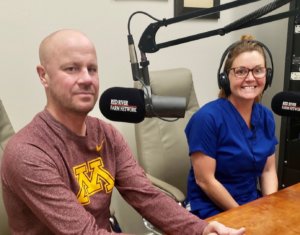 Bryan and Sarah Klabunde farm in Minnesota’s Mahnomen County. Bryan is vice president of Minnesota Farmers Union and Sarah is a nurse and mental health advocate. The pair participated in a recent safeTALK training hosted by the Minnesota Department of Agriculture and the Minnesota Department of Health. The goal of this half-day workshop is to prevent suicides in our ag communities. In this edition of TransFARMation, Bryan and Sarah share their experience and offers insight into dealing with a very stressful harvest season.
Bryan and Sarah Klabunde farm in Minnesota’s Mahnomen County. Bryan is vice president of Minnesota Farmers Union and Sarah is a nurse and mental health advocate. The pair participated in a recent safeTALK training hosted by the Minnesota Department of Agriculture and the Minnesota Department of Health. The goal of this half-day workshop is to prevent suicides in our ag communities. In this edition of TransFARMation, Bryan and Sarah share their experience and offers insight into dealing with a very stressful harvest season.
Episode Description: 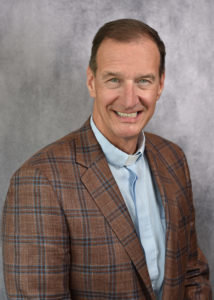 With low commodity markets and continued harvest delays, farm stress is a reality. Do you know a farmer or rancher who is struggling? Bishop Bill Tesch of the Northwestern Minnesota Synod of the Evangelical Lutheran Church of America says it's time for straight talk. "Get past the price of corn and soybeans, right? Get to how's it really going and if you think someone is really in trouble don't be afraid to ask the hard questions." There is an acronym Bishop Tesch likes to share: ACE - Ask, Care, Escort. "Ask the question, offer care and escort or help them get to the services they need." Hear more from Tesch in this episode of TransFARMation.
With low commodity markets and continued harvest delays, farm stress is a reality. Do you know a farmer or rancher who is struggling? Bishop Bill Tesch of the Northwestern Minnesota Synod of the Evangelical Lutheran Church of America says it's time for straight talk. "Get past the price of corn and soybeans, right? Get to how's it really going and if you think someone is really in trouble don't be afraid to ask the hard questions." There is an acronym Bishop Tesch likes to share: ACE - Ask, Care, Escort. "Ask the question, offer care and escort or help them get to the services they need." Hear more from Tesch in this episode of TransFARMation.
Episode Description: 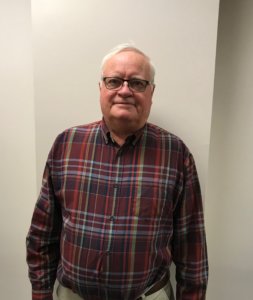 Mark Koehn is nearing the end of his second career as an agricultural appraiser for Stearns County in central Minnesota. Koehn started farming right out of high school in 1973. Low prices, bad weather and medical bills combined to be a big challenge. "Like most guys when things get tough, our first instinct is to work harder so instead of 12-to-14 hour days, I was working 18-plus hours a day." Koehn said the family was struggling financially, emotionally and physically. As a result, the fourth-generation farmer reluctantly sat down with his 96-year old grandfather and explained the situation. Grandpa understood. "He said, Mark, if your horse is dead, get off it; it is not going to get you to town." In the mid-90s, Koehn left the farm to work as an ag appraiser. "There can be actual rewarding second careers. Some may be in the ag community and some may be outside of it." Koehn is now seeing farmers under stress and encourages them to keep their lines of communication open with family and friends. Hear more from Koehn in this episode of TransFARMation.
Mark Koehn is nearing the end of his second career as an agricultural appraiser for Stearns County in central Minnesota. Koehn started farming right out of high school in 1973. Low prices, bad weather and medical bills combined to be a big challenge. "Like most guys when things get tough, our first instinct is to work harder so instead of 12-to-14 hour days, I was working 18-plus hours a day." Koehn said the family was struggling financially, emotionally and physically. As a result, the fourth-generation farmer reluctantly sat down with his 96-year old grandfather and explained the situation. Grandpa understood. "He said, Mark, if your horse is dead, get off it; it is not going to get you to town." In the mid-90s, Koehn left the farm to work as an ag appraiser. "There can be actual rewarding second careers. Some may be in the ag community and some may be outside of it." Koehn is now seeing farmers under stress and encourages them to keep their lines of communication open with family and friends. Hear more from Koehn in this episode of TransFARMation.
Episode Description:  Farmers and ranchers are enduring a tough time in agriculture. Minnesota Department of Agriculture Commissioner Thom Petersen can see signs of farm stress every day in certain sectors. "Farmers are in the fifth year of a downturn economy and it's eating into their equity. There are a lot of farmers struggling financially," says Petersen. That is taking a toll on farm country. Petersen is fielding calls from farmers and ranchers looking for answers. "One of the first things I do is ask if they've talked to a farm advocate and go from there." Hear from Petersen in this TransFARMation episode.
Farmers and ranchers are enduring a tough time in agriculture. Minnesota Department of Agriculture Commissioner Thom Petersen can see signs of farm stress every day in certain sectors. "Farmers are in the fifth year of a downturn economy and it's eating into their equity. There are a lot of farmers struggling financially," says Petersen. That is taking a toll on farm country. Petersen is fielding calls from farmers and ranchers looking for answers. "One of the first things I do is ask if they've talked to a farm advocate and go from there." Hear from Petersen in this TransFARMation episode.
Episode Description: 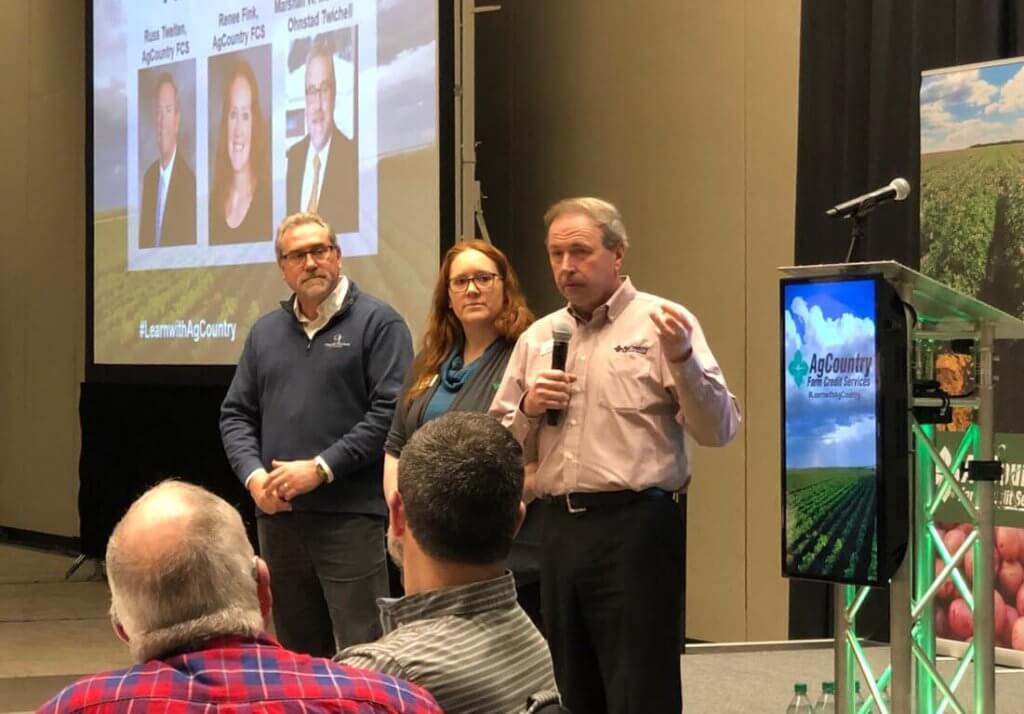 One of the most stressful situations for farm families is the transition of passing that farm from one generation to the next. Russ Tweiten focuses on succession planning for AgCountry Farm Credit Services. It can be difficult to hand over the reins. "Farmers who went through the 1980s know what it's like to struggle and don't want to turn the farm over and lose it," says Tweiten. "Give it some time and allow senior farmers to work their way out." To be successful in the transition process, communication is key. "The thing I sometimes tell people is don't let your shop be the Las Vegas of the farm. It should be shared and talked to with the rest of the family." Hear more from Tweiten in this episode of TransFARMation.
One of the most stressful situations for farm families is the transition of passing that farm from one generation to the next. Russ Tweiten focuses on succession planning for AgCountry Farm Credit Services. It can be difficult to hand over the reins. "Farmers who went through the 1980s know what it's like to struggle and don't want to turn the farm over and lose it," says Tweiten. "Give it some time and allow senior farmers to work their way out." To be successful in the transition process, communication is key. "The thing I sometimes tell people is don't let your shop be the Las Vegas of the farm. It should be shared and talked to with the rest of the family." Hear more from Tweiten in this episode of TransFARMation.
Episode Description: 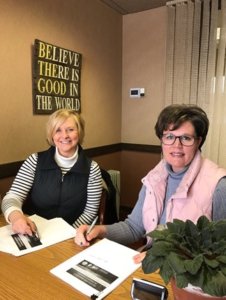 Women on the farm face a unique set of stressors. Not only are they actively engaged in the farm business, but they also have vital roles in the household and with the family. Brenda Mack and Shauna Reitmeier are featured in this edition of TransFARMation. Brenda is an assistant professor at Bemidji State University and is a mental health consultant. She grew up on a farm at East Grand Forks, Minnesota and is married to a Crookston farmer. Shauna is the head of the Northwestern Mental Health Center at Crookston and was also raised on a farm.
In the TransFARMation podcast, Mack said we need the ability to say no. “Oftentimes as women, we’re asked to do things in the community or church or in the family. We feel guilty for not saying yes. We’re helpers and we know it needs to get done; it is okay to say no.” There may be signals when farm stress becomes overwhelming for family or friends. “People don’t show up at different activities or the farm is looking a little more disheveled, it gives us an awareness to start asking questions,” said Reitmeier. “Be there as support, not with judgement.”
Brenda and Shauna co-host the Cultivating Resiliency webinars, which are available on the American Agri-Women website https://americanagriwomen.org/.
Women on the farm face a unique set of stressors. Not only are they actively engaged in the farm business, but they also have vital roles in the household and with the family. Brenda Mack and Shauna Reitmeier are featured in this edition of TransFARMation. Brenda is an assistant professor at Bemidji State University and is a mental health consultant. She grew up on a farm at East Grand Forks, Minnesota and is married to a Crookston farmer. Shauna is the head of the Northwestern Mental Health Center at Crookston and was also raised on a farm.
In the TransFARMation podcast, Mack said we need the ability to say no. “Oftentimes as women, we’re asked to do things in the community or church or in the family. We feel guilty for not saying yes. We’re helpers and we know it needs to get done; it is okay to say no.” There may be signals when farm stress becomes overwhelming for family or friends. “People don’t show up at different activities or the farm is looking a little more disheveled, it gives us an awareness to start asking questions,” said Reitmeier. “Be there as support, not with judgement.”
Brenda and Shauna co-host the Cultivating Resiliency webinars, which are available on the American Agri-Women website https://americanagriwomen.org/.
Episode Description: 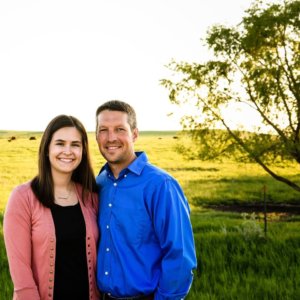 Doug Bichler, who ranches at Linton, North Dakota, was in a farm accident two years ago while baleing hay. Before Doug even thought about what he was doing, he reached over to pull out a stray piece of net wrap. "One of the belts must have grabbed my hand. Before I knew it, I was getting pulled in." His life changed in an instant. While Doug lost his entire right arm as a result of the accident, he continues to ranch today. That is helped out by a positive attitude. "Obviously having one arm is a challenge. There are days I do get frustrated. But, I've come up with different ways to accomplish tasks and am doing just about everything I was doing before." Doug has learned a lot since the accident and says a big source of anxiety can be comparing yourself to others. "It seems like there is this constant competition we put ourselves in and that's a dangerous place to be. You just have to focus on what you're doing and do the best you can."
Doug Bichler, who ranches at Linton, North Dakota, was in a farm accident two years ago while baleing hay. Before Doug even thought about what he was doing, he reached over to pull out a stray piece of net wrap. "One of the belts must have grabbed my hand. Before I knew it, I was getting pulled in." His life changed in an instant. While Doug lost his entire right arm as a result of the accident, he continues to ranch today. That is helped out by a positive attitude. "Obviously having one arm is a challenge. There are days I do get frustrated. But, I've come up with different ways to accomplish tasks and am doing just about everything I was doing before." Doug has learned a lot since the accident and says a big source of anxiety can be comparing yourself to others. "It seems like there is this constant competition we put ourselves in and that's a dangerous place to be. You just have to focus on what you're doing and do the best you can."
Episode Description: Mary Nell Preisler has been involved in the Minnesota Farmer-Lender Mediation Program since the farm crisis of the 1980s and now serves as the statewide coordinator. A farmer in debt has the opportunity to renegotiate, restructure or resolve debt through mediation. "It seems to me that sometimes people are just paralyzed; they don't know which way to turn," says Preisler. As a neutral party, the mediator can facilitate open communication and help resolve financial differences. You can learn more in this edition of TransFARMation.
Episode Description: 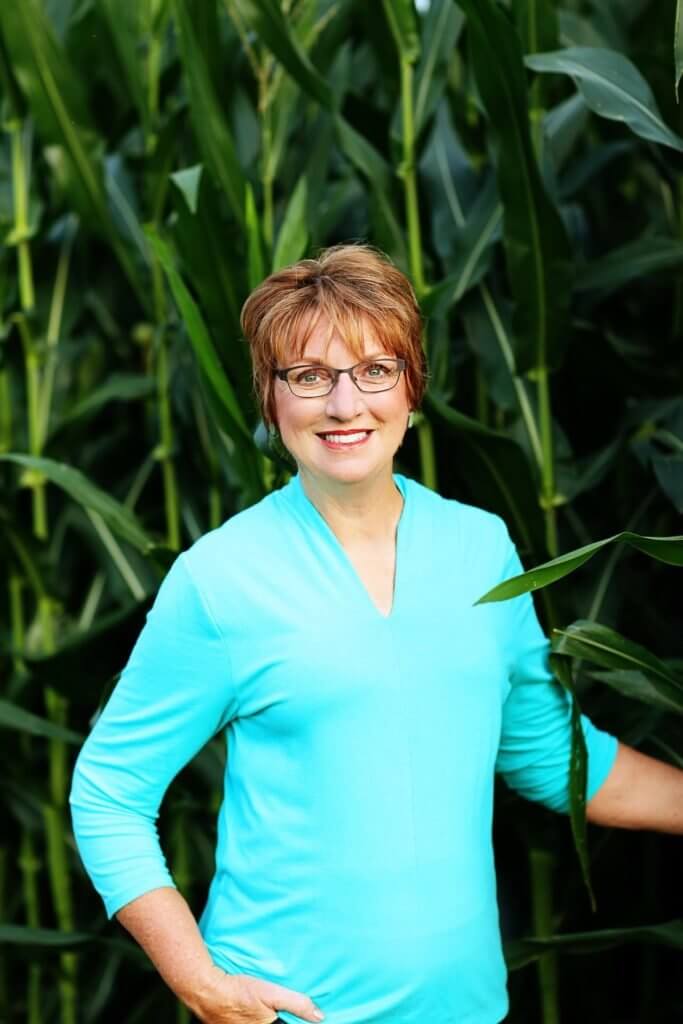 One of the biggest sources of stress in agriculture is transitioning the farm from one generation to the next. Farmer, author and speaker Jolene Brown encourages farmers to operate as a business-first family. “What that means is you honor the family so much, you will do the business right,” says Brown. “When you start operating as a business and get some management tools into place, you’re more productive, profitable and have some piece of mind.” Relationships and communication are are important, especially for those in family-based businesses like farming. “Farmers are superior at weeds and seeds, machinery and money, but they can be crappy with people. So make sure there is a leader who understands they’re in the people business.” You can hear more from Jolene in this episode of TransFARMation.
One of the biggest sources of stress in agriculture is transitioning the farm from one generation to the next. Farmer, author and speaker Jolene Brown encourages farmers to operate as a business-first family. “What that means is you honor the family so much, you will do the business right,” says Brown. “When you start operating as a business and get some management tools into place, you’re more productive, profitable and have some piece of mind.” Relationships and communication are are important, especially for those in family-based businesses like farming. “Farmers are superior at weeds and seeds, machinery and money, but they can be crappy with people. So make sure there is a leader who understands they’re in the people business.” You can hear more from Jolene in this episode of TransFARMation.
Episode Description: 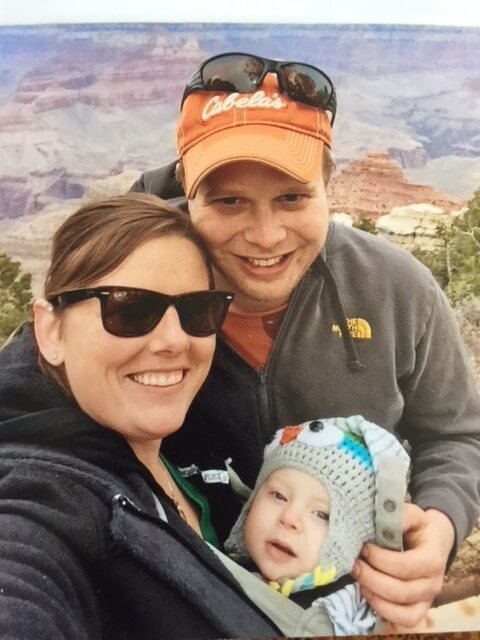 On February 8, 2017, Nathan Zahradka of Adams, North Dakota took his own life. Dale Zahradka, Nathan's father, describes his son as a very caring, gentle person who loved farming and the outdoors. “When he grew up, Nathan was fun and full of life. As that started to slip away, I wish we could have seen that. I want others to see that is possible in their families. They can stop it before it ends.” Dale goes on to say it is extremely hard to share his son's story. "As much as we don’t want to share it, we need to. The stigma of suicide has been to sweep it under the carpet and not talk about it. It is an illness, like cancer, but there is help available.” In this edition of TransFARMation, Dale Zahradka shares his son’s story.
On February 8, 2017, Nathan Zahradka of Adams, North Dakota took his own life. Dale Zahradka, Nathan's father, describes his son as a very caring, gentle person who loved farming and the outdoors. “When he grew up, Nathan was fun and full of life. As that started to slip away, I wish we could have seen that. I want others to see that is possible in their families. They can stop it before it ends.” Dale goes on to say it is extremely hard to share his son's story. "As much as we don’t want to share it, we need to. The stigma of suicide has been to sweep it under the carpet and not talk about it. It is an illness, like cancer, but there is help available.” In this edition of TransFARMation, Dale Zahradka shares his son’s story.
Episode Description: 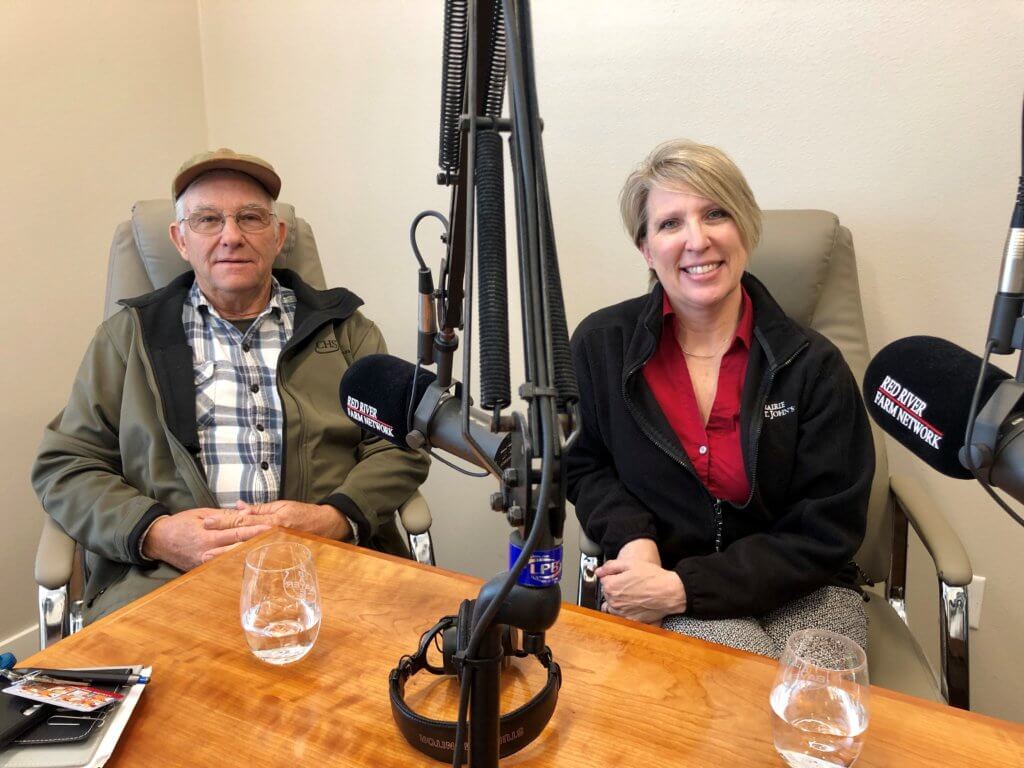 With weather, volatile markets and farm policy, everyone acknowledges that there is an issue with farm stress. Yet, it is an issue that people often don't talk about and it can be difficult to ask for help. Doug Kramer, who farms at Bejou, Minnesota, went through the farm crisis of the 1980s, which has many similarities to today. During that time, Doug took the brave step to see a therapist. "The first few times I went, I felt like I didn't want anyone to know or to see me, but after a couple visits, I guess I didn't care if anyone saw me because I knew I needed help."
Monica Kramer McConkey is a farm kid, who for the past 25 years has worked in the field of behavior health. Today, Monica works for Prairie St. John's and has a consulting firm called Eyes on the Horizon. In this edition of TransFARMation, Monica joins her Dad in a conversation about farm stress.
With weather, volatile markets and farm policy, everyone acknowledges that there is an issue with farm stress. Yet, it is an issue that people often don't talk about and it can be difficult to ask for help. Doug Kramer, who farms at Bejou, Minnesota, went through the farm crisis of the 1980s, which has many similarities to today. During that time, Doug took the brave step to see a therapist. "The first few times I went, I felt like I didn't want anyone to know or to see me, but after a couple visits, I guess I didn't care if anyone saw me because I knew I needed help."
Monica Kramer McConkey is a farm kid, who for the past 25 years has worked in the field of behavior health. Today, Monica works for Prairie St. John's and has a consulting firm called Eyes on the Horizon. In this edition of TransFARMation, Monica joins her Dad in a conversation about farm stress.
Episode Description:  Farmers have a lot coming at them right now, including low commodity prices, uncertain trade policies and weather delays during the rush of a busy planting season. None of these issues are things that farmers can control. When overwhelmed, it can be easy to stick our head in the sand and not deal with these problems. Ted Matthews, who is the rural health counselor for the State of Minnesota, says it is important to concentrate on what you can control. "Know what you have in front of you and what you have control over and focus on those things. Getting those things done will be a positive thing." Matthews takes calls from farmers every day, helping them maneuver through difficult times. In this edition of TransFARMation, Matthews offers ideas for farmers who are struggling.
Farmers have a lot coming at them right now, including low commodity prices, uncertain trade policies and weather delays during the rush of a busy planting season. None of these issues are things that farmers can control. When overwhelmed, it can be easy to stick our head in the sand and not deal with these problems. Ted Matthews, who is the rural health counselor for the State of Minnesota, says it is important to concentrate on what you can control. "Know what you have in front of you and what you have control over and focus on those things. Getting those things done will be a positive thing." Matthews takes calls from farmers every day, helping them maneuver through difficult times. In this edition of TransFARMation, Matthews offers ideas for farmers who are struggling.
Episode Description: 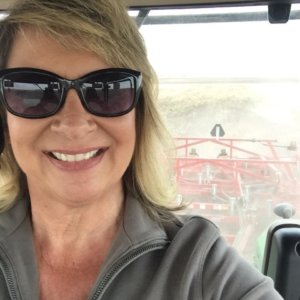 Theresia Gillie of Hallock, Minnesota is a survivor. Faced with financial challenges, her husband, Keith, took his own life just over two years ago. "It isn't something you get over, it's something you live with."
Life has changed for Theresia. "The life I knew no longer existed. I don't get to have my old life back." Theresia is feeling stronger. From her own experience, she encourages others to be aware and be ready to help. "Watch out for your neighbors. Look for anything not normal. If they're struggling, help them out."
Theresia continues to farm today, sharing equipment with two of her neighbors. You can hear her emotional story in this edition of TransFARMation.
Theresia Gillie of Hallock, Minnesota is a survivor. Faced with financial challenges, her husband, Keith, took his own life just over two years ago. "It isn't something you get over, it's something you live with."
Life has changed for Theresia. "The life I knew no longer existed. I don't get to have my old life back." Theresia is feeling stronger. From her own experience, she encourages others to be aware and be ready to help. "Watch out for your neighbors. Look for anything not normal. If they're struggling, help them out."
Theresia continues to farm today, sharing equipment with two of her neighbors. You can hear her emotional story in this edition of TransFARMation.
Episode Description:  Episode Description: After a few tough years farming in the 1980s, Randy Koenen found a new career in farm radio. "I do miss farming at some points, but there are a lot of things I don't miss; I don't miss the stress," said Randy. "I was under immense pressure. I couldn't sleep at night, and I wasn't eating. Once I made the decision to step away, a big weight was lifted off my shoulders." For farmers that are struggling, Randy encourages them to consider the many options. "As farmers, we're builders, we're electricians, we're mechanics, we're truck drivers. As farmers, we have a skill set where we can do just about anything." Randy shares his story in this edition of TransFARMation.
Episode Description: After a few tough years farming in the 1980s, Randy Koenen found a new career in farm radio. "I do miss farming at some points, but there are a lot of things I don't miss; I don't miss the stress," said Randy. "I was under immense pressure. I couldn't sleep at night, and I wasn't eating. Once I made the decision to step away, a big weight was lifted off my shoulders." For farmers that are struggling, Randy encourages them to consider the many options. "As farmers, we're builders, we're electricians, we're mechanics, we're truck drivers. As farmers, we have a skill set where we can do just about anything." Randy shares his story in this edition of TransFARMation.
Episode Description: 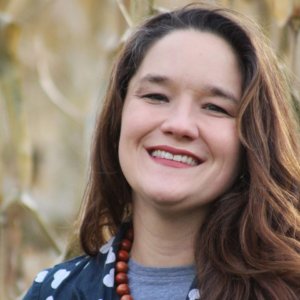 The Red River Farm Network is partnering with the Minnesota Department of Agriculture on a new radio and podcast series called TransFARMation. In the inaugural episode, Little Falls, Minnesota dairy farmer Brenda Rudolph shares her story about transitioning the family business. "Every farm transition is different, but the biggest thing is the struggle of being open and communication on the plan." As a couple, Brenda and her husband, Nathan, have a quarterly business meeting. "We treat it very professional. We need to communicate and so we created a set time for a meeting and it is not just by the bulk tank talking, this is business time." In addition to this podcast, Brenda's thoughts can be found on her blog, Twitter and Facebook.
The Red River Farm Network is partnering with the Minnesota Department of Agriculture on a new radio and podcast series called TransFARMation. In the inaugural episode, Little Falls, Minnesota dairy farmer Brenda Rudolph shares her story about transitioning the family business. "Every farm transition is different, but the biggest thing is the struggle of being open and communication on the plan." As a couple, Brenda and her husband, Nathan, have a quarterly business meeting. "We treat it very professional. We need to communicate and so we created a set time for a meeting and it is not just by the bulk tank talking, this is business time." In addition to this podcast, Brenda's thoughts can be found on her blog, Twitter and Facebook.
If you have a story idea for TransFARMation, we’d love to hear from you.
*Broadcasts are solely the responsibility of RRFN and do not necessarily represent the official views of the Minnesota Department of Agriculture or USDA National Institute of Food and Agriculture.


